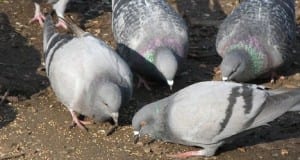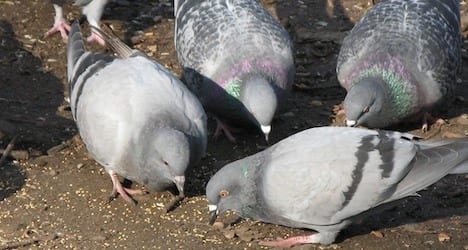
by Pigeon Patrol | Sep 11, 2023 | Bird Spike, Pigeon Spikes, Pigeons, Pigeons in the News, Raccoons, Sparrows, UltraSonic Bird Control
SASKATOON — The City of Saskatoon says about 2,300 pigeons have been killed as part of a project to rehabilitate a major bridge.
The city says the dead birds have been removed from the Senator Sid Buckwold Bridge along with 635,000 kilograms of pigeon poop.
It says the birds and the poop had to go because they posed a health risk and the weight of the droppings — equivalent to 356 medium-sized vehicles — could compromise the structure of the bridge.
The city says a specialized pest control company was hired to trap and humanely euthanize the pigeons and barriers are now in place to prevent birds from roosting in the same areas again.
Killing the birds, removing the droppings and building the barriers cost $800,000.
The bridge was completed in 1966 and spans the South Saskatchewan River. (CTV Saskatoon, The Canadian Press)
Source
Pigeon Patrol Products & Services is the leading manufacturer and distributor or bird deterrent (control) products in Canada. Pigeon Patrol products have solved pest bird problems in industrial, commercial, and residential settings since 2000, by using safe and humane bird
deterrents with only bird and animal friendly solutions. At Pigeon Patrol, we manufacture and offer a variety of bird deterrents, ranging from Ultra-flex Bird Spikes with UV protection, Bird Netting, 4-S Bird Gel and the best Ultrasonic and audible sound devices on the market today.
Voted Best Canadian wholesaler for Bird Deterrent products ten years in a row.
Contact us at 1 877-4-NO-BIRD,(604) 585-9279 or visit our website at www.pigeonpatrol.ca
Pigeon/Pigeon Patrol / Pigeons Roosing / Vancouver Pigeon Control / Bird Spikes / Bird Control / Bird Deterrent / PIgeon Deterrent / Surrey Pigeon Control / Pest / Seagull deterrent / Vancouver Pigeon Blog / Birds Inside Home / Pigeons in the cities / Ice Pigeons / What to do about pigeons / sparrows, Damage by Sparrows, How to Keep Raccoons Away, Why Are Raccoons Considered Pests / De-fence / Pigeon Nesting / Bird Droppings / Pigeon Dropping / woodpecker control / Professional Bird Control Company / Keep The Birds Away / Birds/rats/seagull/pigeon/woodpecker/dove/sparrow/pidgeon control/pidgeon problem/pidgeon control/flying rats/pigeon problems/ bird netting/bird gel/bird spray/bird nails/bird guard
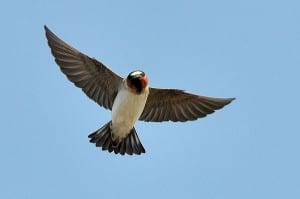
by Pigeon Patrol | Sep 11, 2023 | 4-S Gel Bird repellent, Animal Deterrent Products, Bird Deterrent Products, Bird Law, Bird Netting
Since European settlement, many granivorous birds of northern Australia’s savanna landscapes have declined. One such example, the partridge pigeon (Geophaps smithii), has suffered a significant range contraction, disappearing from at least half of its pre-European range. Multiple factors have been implicated in this decline, including the loss of traditional Aboriginal burning practices, grazing by large exotic herbivores and predation by feral cats (Felis catus). While populations of partridge pigeon on the Tiwi Islands may be particularly important for the long-term persistence of this species, they too may be at risk of decline. However, as a reliable method to detect this species has not yet been developed and tested, we lack the ability to identify, at an early stage, the species’ decline in a given location or region. This severely limits our capacity to make informed management decisions. Here, we demonstrate that the standard camera trapping approach for native mammal monitoring in northern Australia attained an overall probability of detecting partridge pigeon greater than 0.98. We thus provide a robust estimate of partridge pigeon site occupancy (0.30) on Melville Island, the larger of the two main Tiwi Islands. The information presented here for the partridge pigeon represents a critical first step towards the development of optimal monitoring programmes with which to gauge population trajectories, as well as the response to remedial management actions. In the face of ongoing biodiversity loss, such baseline information is vital for management agencies to make informed decisions and should therefore be sought for as many species as possible.

Source
Pigeon Patrol Products & Services is the leading manufacturer and distributor or bird deterrent (control) products in Canada. Pigeon Patrol products have solved pest bird problems in industrial, commercial, and residential settings since 2000, by using safe and humane bird
deterrents with only bird and animal friendly solutions. At Pigeon Patrol, we manufacture and offer a variety of bird deterrents, ranging from Ultra-flex Bird Spikes with UV protection, Bird Netting, 4-S Bird Gel and the best Ultrasonic and audible sound devices on the market today.
Voted Best Canadian wholesaler for Bird Deterrent products ten years in a row.
Contact us at 1 877-4-NO-BIRD,(604) 585-9279 or visit our website at www.pigeonpatrol.ca
Pigeon/Pigeon Patrol / Pigeons Roosing / Vancouver Pigeon Control / Bird Spikes / Bird Control / Bird Deterrent / PIgeon Deterrent / Surrey Pigeon Control / Pest / Seagull deterrent / Vancouver Pigeon Blog / Birds Inside Home / Pigeons in the cities / Ice Pigeons / What to do about pigeons / sparrows, Damage by Sparrows, How to Keep Raccoons Away, Why Are Raccoons Considered Pests / De-fence / Pigeon Nesting / Bird Droppings / Pigeon Dropping / woodpecker control / Professional Bird Control Company / Keep The Birds Away / Birds/rats/seagull/pigeon/woodpecker/dove/sparrow/pidgeon control/pidgeon problem/pidgeon control/flying rats/pigeon problems/ bird netting/bird gel/bird spray/bird nails/bird guard
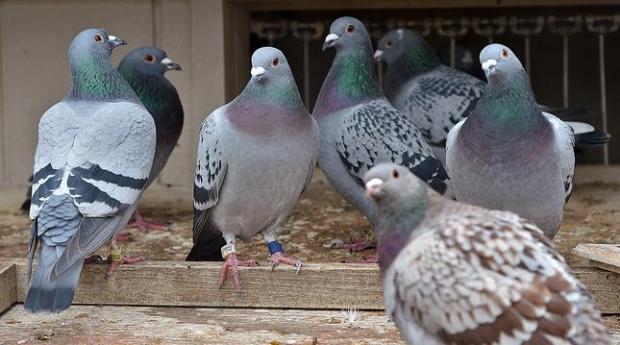
by Pigeon Patrol | Sep 7, 2023 | 4-S Gel Bird repellent, Animal Deterrent Products, Bird Deterrent Products, Bird Law, Bird Netting, Bird Spikes
Pigeons are always on the lookout for a source of food and buildings with plenty of high nooks and crannies to roost and nest in, and your factory might just fit the bill.
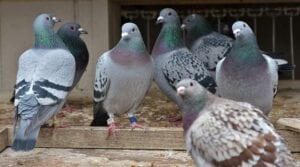
But if pigeons get into your factory, it’s a serious problem. These pest birds and their guano (poo) carry and spread some nasty diseases, and they can also damage property. This is bad news for any business, but if food is manufactured, packaged, and stored in your factory, it can be disastrous.
Before your reputation and your profits take a serious hit, read our advice on how you can keep pigeons out of your factory.
How to prevent pigeons from getting into your factory
First, eliminate any sources of food
Any sources of food will be very attractive to pigeons, and eliminating them will make your factory less desirable to roost or nest in. Keep your factory scrupulously clean and don’t leave food ingredients or waste lying around, inside or outside of the premises.
It’s also a good idea to talk to nearby businesses if their poor waste management or housekeeping practices are attracting pest birds to the vicinity.
Second, use deterrents
When you are trying to prevent pigeons from nesting or roosting in or on your property, deterrents like bird spikes, bird wire, and netting can be effective at keeping them at bay.
Third, fix up your factory
If there are holes in your factory roof or walls that you haven’t got around to fixing, you could inadvertently be providing pigeons with the perfect nesting place. Make sure you fix them up-deterring pigeons is all about making your factory much less attractive to them.
Finally, deal with the guano
As we mentioned earlier, pigeon droppings can contain some harmful bacteria, so we would recommend that you don’t try to clean it up yourself.
If pest pigeons have made a mess of your factory, call in the professionals. We will blast away guano with the right equipment and products so your premises is clean, safe, and hygienic again.
Do I need professional pigeon control for my factory?
As birds are protected by the Wildlife and Countryside Act 1981, it’s illegal to poison or shoot them if you don’t have a license. If you put poison down, you could harm other birds and end up in legal trouble. And not only that, if you’re a food business, you won’t be able to use toxic bird control methods anyway as you could contaminate your product.
If you hire professional pest control, you can get your pest problem dealt with fast. We can deal with any existing infestation, install effective bird-proofing and deterrents, and give you expert advice on preventing any problems in the future.
To protect your business, customers, and your reputation, professional pigeon control is your best bet.
Source
Pigeon Patrol Products & Services is the leading manufacturer and distributor or bird deterrent (control) products in Canada. Pigeon Patrol products have solved pest bird problems in industrial, commercial, and residential settings since 2000, by using safe and humane bird
deterrents with only bird and animal friendly solutions. At Pigeon Patrol, we manufacture and offer a variety of bird deterrents, ranging from Ultra-flex Bird Spikes with UV protection, Bird Netting, 4-S Bird Gel and the best Ultrasonic and audible sound devices on the market today.
Voted Best Canadian wholesaler for Bird Deterrent products ten years in a row.
Contact us at 1 877-4-NO-BIRD,(604) 585-9279 or visit our website at www.pigeonpatrol.ca
Pigeon/Pigeon Patrol / Pigeons Roosing / Vancouver Pigeon Control / Bird Spikes / Bird Control / Bird Deterrent / PIgeon Deterrent / Surrey Pigeon Control / Pest / Seagull deterrent / Vancouver Pigeon Blog / Birds Inside Home / Pigeons in the cities / Ice Pigeons / What to do about pigeons / sparrows, Damage by Sparrows, How to Keep Raccoons Away, Why Are Raccoons Considered Pests / De-fence / Pigeon Nesting / Bird Droppings / Pigeon Dropping / woodpecker control / Professional Bird Control Company / Keep The Birds Away / Birds/rats/seagull/pigeon/woodpecker/dove/sparrow/pidgeon control/pidgeon problem/pidgeon control/flying rats/pigeon problems/ bird netting/bird gel/bird spray/bird nails/bird guard
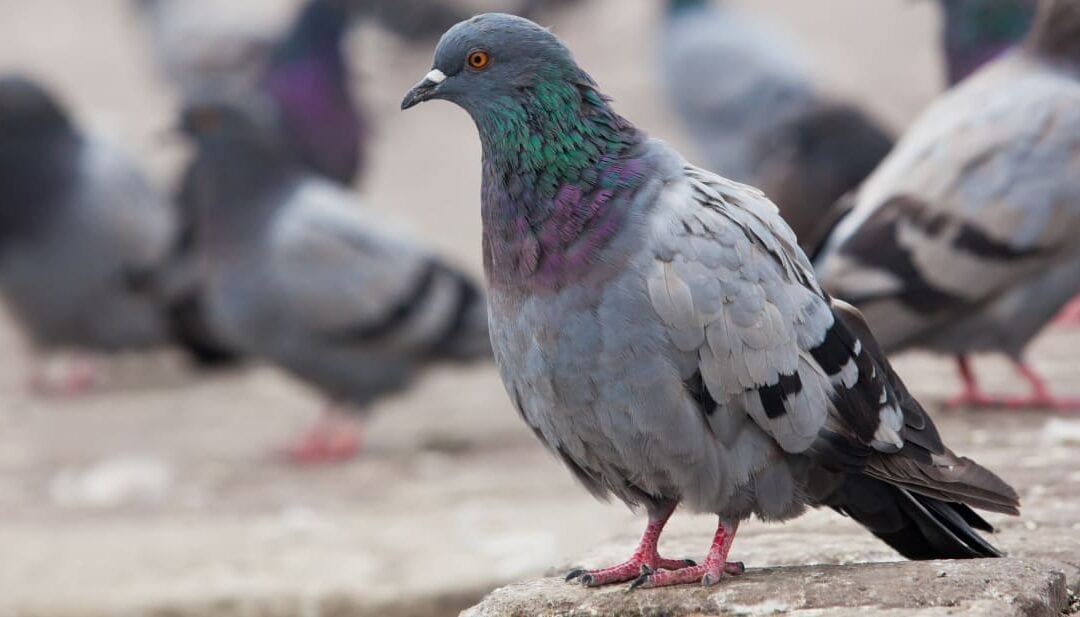
by Pigeon Patrol | Sep 7, 2023 | Bird Spike, Pigeon Control, Pigeon Droppings, Pigeon Patrol's Services, Pigeon Predators, Pigeon Spikes, Pigeons
Nature-loving homeowners like to put out feeders and plant certain flowers and shrubs, to lure birds into their backyards. That’s because birds not only lend more vigor and melody to the life of a garden, but they are also responsible for pollination and pest control.
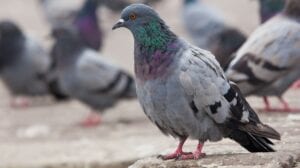
Indeed, birds-caping – or designing your garden to entice local birds – has become increasingly popular among home gardeners these days.
But not every gardener wants birds sauntering onto their garden plots. Pigeons will devour entire heads of cabbage in the afternoon. Crows destroy corn crops by the acre in the countryside, and bluejays will loot your berry bushes almost completely bare of fruit.
The Right Way to Keep Birds Out of Your Vegetable Garden
Still, the wise gardener understands that birds perform an important function in the ecosystem. We recognize why we should ensure that avian populations don’t dwindle any faster than they are dwindling now.
So, below are seven ways to protect your backyard harvests without harming unwanted birds.
1. Scarecrows
Scarecrows, of course, are an obvious solution against birds. But if your makeshift sentry has been posted in the same spot for an extended period now, then birds will have already concluded that he’s harmless.
You need to move your scarecrow’s post a few times around each week. You have to change his clothes, too, to convince the birds that he’s not just a stationary defense tactic, but an actual, mobile threat.
Some gardeners use reflective objects such as old compact discs to keep local birds away. You should also move and rearrange those frequently. Birds catch on surprisingly quickly despite the connotations of the term “bird-brained.”
2. Butterfly Netting
Barriers are among the most effective ways to deter birds from your garden. Butterfly netting protects crops from birds while allowing smaller beneficial insects access to your crops to ensure pollination.
Experts suggest that you keep your netting pulled taught, and use netting with holes smaller than one centimeter to avoid injuring birds.
Be sure you invest in high-quality, UV-resistant netting materials. They may be a bit more expensive, but higher-quality netting will last a lifetime. Cheaper netting tends to fray and deteriorate, becoming a potentially dangerous snag for birds.
3. Chicken Wire
Charles Barnard, an English ironmonger, invented chicken wire in 1844 as a cheap and easy way to keep small animals and poultry penned in one area. You can use the same principle and material to keep birds out of your vegetable plots.
Pin chicken wire to the ground to protect newly-planted seeds or freshly-sown tubers from birds or even chickens scratching and pecking at the soil. As your seedlings start to grow, you can lift the wire off the ground on stakes for additional protection.
4. Garden Fleece
Gardeners often install garden fleece to protect crops from frost in cold weather months, but you can also use it year-round to shield your crops from birds. Drape the fine, white material over your vegetable patch to keep the birds in your neighborhood from harvesting your greens.
Weigh the sides down with rocks or pegs. You can always roll back the fleece when harvest season comes around.
5. Protective Plants
Pigeons, be they wood or rock doves, are rapacious devourers of vegetables in the cabbage family. They are quite persistent and will return to your patch every day until your entire crop is gone. If you don’t have a devoted terrier to shoo them away, you need another plan.
If you are simply not a fan of netting and cages, you can try confusing pigeons by surrounding your cabbage patch with annuals. Plant a dense barrier of calendulas, nemophila, cornflowers, field poppies, and other shorter-growing wildflowers around your plot.
The look is pleasing, inconspicuous and, as a deterrent against pigeons, the strategy does work. Pigeons do not like to wade through lush flowers. They are naturally wary of what may lurk underneath.
6. Toy Predators
Decoy predators – such as toy owls, falcons, or other birds of prey – can help deter birds from ravaging your garden’s harvests. However, like the scarecrow, if these stationary decoys are not relocated often, birds will soon learn that they are harmless.
Moving your toy owls and decoy predators around in the garden will keep neighborhood birds from swooping in to consume your harvest. Decoys that move or make a sound are even better at deterring birds.
7. Stick Barriers
Push sticks and small twigs into the ground around your vegetable patch to create a small forest of sticks. Birds will likely notice the menacing sticks barring their way instead of the vegetables you want to protect.
Source
Pigeon Patrol Products & Services is the leading manufacturer and distributor or bird deterrent (control) products in Canada. Pigeon Patrol products have solved pest bird problems in industrial, commercial, and residential settings since 2000, by using safe and humane bird
deterrents with only bird and animal friendly solutions. At Pigeon Patrol, we manufacture and offer a variety of bird deterrents, ranging from Ultra-flex Bird Spikes with UV protection, Bird Netting, 4-S Bird Gel and the best Ultrasonic and audible sound devices on the market today.
Voted Best Canadian wholesaler for Bird Deterrent products ten years in a row.
Contact us at 1 877-4-NO-BIRD,(604) 585-9279 or visit our website at www.pigeonpatrol.ca
Pigeon/Pigeon Patrol / Pigeons Roosing / Vancouver Pigeon Control / Bird Spikes / Bird Control / Bird Deterrent / PIgeon Deterrent / Surrey Pigeon Control / Pest / Seagull deterrent / Vancouver Pigeon Blog / Birds Inside Home / Pigeons in the cities / Ice Pigeons / What to do about pigeons / sparrows, Damage by Sparrows, How to Keep Raccoons Away, Why Are Raccoons Considered Pests / De-fence / Pigeon Nesting / Bird Droppings / Pigeon Dropping / woodpecker control / Professional Bird Control Company / Keep The Birds Away / Birds/rats/seagull/pigeon/woodpecker/dove/sparrow/pidgeon control/pidgeon problem/pidgeon control/flying rats/pigeon problems/ bird netting/bird gel/bird spray/bird nails/bird guard
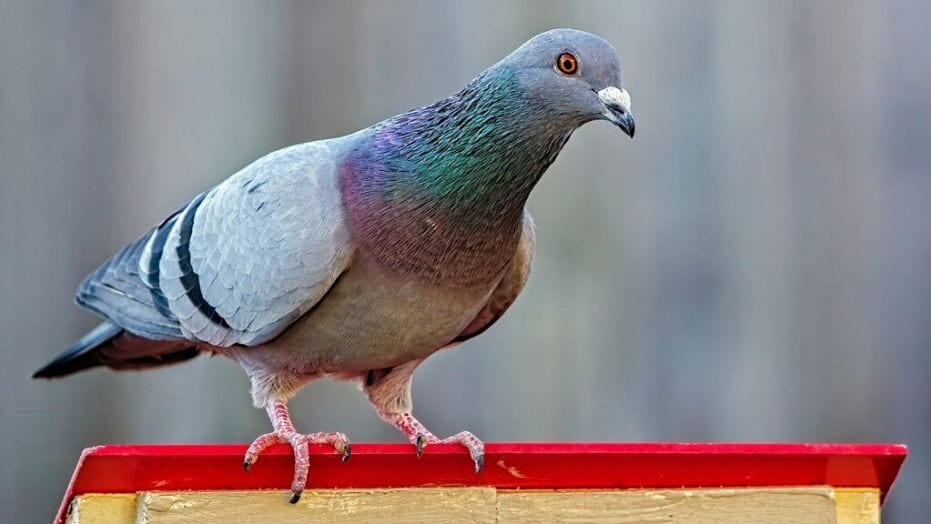
by Pigeon Patrol | Sep 7, 2023 | history of pigeons, MBCA, pet bird, Pigeon Control, Pigeon Droppings, Pigeon Patrol's Services, Pigeon Predators
We all are well aware of the fact that how films, web series, and TV serials have romanticized the idea of symbolizing birds such as pigeons and sparrows as a symbol of love and peace. However, the truth is completely different from what we see on the screen. If these birds become unpaid tenants of your little balcony, you are surely going to encounter the nuisance they create. Thus, many homeowners opt for Sparrow Netting or Pigeon Netting to keep them at bay.
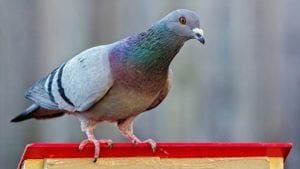
In addition, during the summer season, it becomes extremely important to place pigeon netting for balconies to get rid of all the chaos they bring with them. You may wonder how these little pests can cause substantial damage to your family’s health and also to your property. Well, they can and that is the reason why various residential and industrial spaces in rural and urban areas rely on anti bird netting services.
With that being said, this write-up is specially dedicated to discussing why anti bird netting becomes crucial during the Indian summer season. The comprehensive guide will also shed some light on the key features of HiCare’s bird netting in Pune, Mumbai, and other Indian cities.
Birds are Dirty Beings
Yes, believe it or not, they are. And, if you don’t you can check out the surface of a car parking in the open space or benches of the park. Now, just imagine that a bunch of birds are enjoying the shade under your balcony. Once they leave, you are likely to spot their droppings. It is a treat for all the balcony gardeners as a large amount of their dropping can harm vegetation.
Birds Can Cause Illness
Diseases such as pigeon ornithosis, encephalitis, and salmonella food poisoning have all been linked to pigeons. However, determining the true incidence of illness transmission from pigeons to humans is problematic. Disease outbreaks that may be traced back to pigeon flocks are uncommon. Hence, another strong reason for subscribing to bird netting in Pune, Mumbai, or any other metropolitan city of India.
Pigeon excrement contains the causal agent of histoplasmosis, a systemic fungal illness that affects the human respiratory tract if allowed to accumulate for several years. Histoplasmosis can be lethal in extreme cases. Pigeons’ external parasites include a variety of mites, fleas, ticks, and bugs.
More than anything else, pigeons can be a threat to human safety. Thus, the elimination of feeding, watering, roosting, and nesting sites is important during summer, winter, or any Indian season. As birds pose serious concerns to gardeners and property owners, bird netting services can act as a barrier to letting them in your sweet home. With that being said, here are four benefits of Bird Netting installation in summer. Scroll down to take a brief look at each!
Top 4 Benefits of Bird Netting
- Long-Term Protection
- Durable and Sturdy
- Cost-Effective
- Simple to Use
- Disease Prevention
- Environmentally Friendly
- Low Maintenance
1. Long-Term Protection
During summer, birds often come in their numbers to attack your balcony causing significant damage to the surroundings. To counter this, the net is an effective way to offer the right protection to complete your space from bird damage.
2. Durable and Sturdy
Nets are made of the strongest, highest-quality materials, come in a variety of shapes and sizes, and are UV-stabilized. Some nets have been estimated to last up to several years. Anti-bird netting pays off in terms of durability, which is important in any worthwhile investment. The setup is basic and straightforward.
3. Cost-Effective
Nets are made of the strongest, highest-quality materials, come in a variety of shapes and sizes, and are UV-stabilized. Some nets have been estimated to last up to several years. Anti-bird netting pays off in terms of durability, which is essential in any worthwhile investment.
4. Simple to Use
The netting is exceptionally simple to use and easy to install. The process is hassle-free and professionals can do it within a given timeframe. Once installed properly, it does not require any external force to come into action.
Many reasons and benefits can lure more homeowners to install pigeon netting for balconies. However, finding the best professionals that give Bird Netting Services in Mumbai or any Indian city could be a bit difficult. On the flip side, it is not impossible either. If your browser history is filled with the query – Bird Netting Mumbai, HiCare has a solution for you.
5. Disease Prevention
Bird droppings can contain harmful pathogens and bacteria. By keeping birds away from areas where people live and work, bird netting reduces the risk of diseases transmitted through contact with bird droppings. This is especially crucial in urban environments.
6. Environmentally Friendly
Bird netting is considered an environmentally friendly bird control method because it does not harm the birds. Instead, it provides a physical barrier that discourages birds from accessing certain areas without causing them harm. This makes it a humane and sustainable solution.
7. Low Maintenance
Once bird netting is properly installed, it requires minimal maintenance. Routine inspections to check for damage and repairs as needed are typically the only maintenance tasks required. This saves time and effort compared to other bird control methods.
Source
Pigeon Patrol Products & Services is the leading manufacturer and distributor or bird deterrent (control) products in Canada. Pigeon Patrol products have solved pest bird problems in industrial, commercial, and residential settings since 2000, by using safe and humane bird
deterrents with only bird and animal friendly solutions. At Pigeon Patrol, we manufacture and offer a variety of bird deterrents, ranging from Ultra-flex Bird Spikes with UV protection, Bird Netting, 4-S Bird Gel and the best Ultrasonic and audible sound devices on the market today.
Voted Best Canadian wholesaler for Bird Deterrent products ten years in a row.
Contact us at 1 877-4-NO-BIRD,(604) 585-9279 or visit our website at www.pigeonpatrol.ca
Pigeon/Pigeon Patrol / Pigeons Roosing / Vancouver Pigeon Control / Bird Spikes / Bird Control / Bird Deterrent / PIgeon Deterrent / Surrey Pigeon Control / Pest / Seagull deterrent / Vancouver Pigeon Blog / Birds Inside Home / Pigeons in the cities / Ice Pigeons / What to do about pigeons / sparrows, Damage by Sparrows, How to Keep Raccoons Away, Why Are Raccoons Considered Pests / De-fence / Pigeon Nesting / Bird Droppings / Pigeon Dropping / woodpecker control / Professional Bird Control Company / Keep The Birds Away / Birds/rats/seagull/pigeon/woodpecker/dove/sparrow/pidgeon control/pidgeon problem/pidgeon control/flying rats/pigeon problems/ bird netting/bird gel/bird spray/bird nails/bird guard
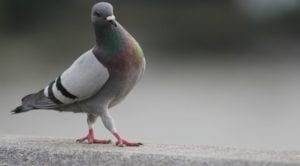
by Pigeon Patrol | Sep 7, 2023 | Bird Spike, Pigeon Predators, Pigeon Spikes, Pigeons, Pigeons in the News, Raccoons, Sparrows, UltraSonic Bird Control
On 8 January 2021, a pigeon was found dead, having been trapped in green netting installed by the Hong Kong Government, in order to deter birds from gathering under the cover of the Star Ferry Bus Terminus.

The green nets, along with bird spikes were installed several years ago to act as a deterrent, but the Hong Kong Pigeon and Dove Rescue (HKPDR), has urged authorities to remove the nets as pigeons have been injured or strangled to death by them. HKPDR said it had seen pigeons previously trapped by bird spikes and had contacted the relevant departments for response, but to no avail.
HKPDR said wildlife management should adopt a humane, animal-based, adding that it had earlier proposed more humane measures including setting up pigeon boxes. But all suggestions had been turned down by authorities. A social media campaign had also recently been launched to urge the Government to remove the green netting.
HKPRD also highlighted that some birds can enter via the holes in the net, but their wings and feet could get hooked onto the netting, causing them significant injuries, and rendering them unable to escape.
On Facebook, the HKPDR wrote:-
“The net is half installed which is causing unnatural and unnecessary death of pigeons. We urge the pier to stop all inhumane treatment and look at effective and humane ways to achieve their goal.”
A photo posted to Facebook by the group shows that the green net did not completely seal off the cover of the bus terminus. Several pigeons were able to stand above the green net and under the cover. HKPDR added that the government added bird spikes underneath the bus terminal cover, noting that it is not only ineffective but pigeons have to bear “unnecessary life danger.”
Source
Pigeon Patrol Products & Services is the leading manufacturer and distributor or bird deterrent (control) products in Canada. Pigeon Patrol products have solved pest bird problems in industrial, commercial, and residential settings since 2000, by using safe and humane bird
deterrents with only bird and animal friendly solutions. At Pigeon Patrol, we manufacture and offer a variety of bird deterrents, ranging from Ultra-flex Bird Spikes with UV protection, Bird Netting, 4-S Bird Gel and the best Ultrasonic and audible sound devices on the market today.
Voted Best Canadian wholesaler for Bird Deterrent products ten years in a row.
Contact us at 1 877-4-NO-BIRD,(604) 585-9279 or visit our website at www.pigeonpatrol.ca
Pigeon/Pigeon Patrol / Pigeons Roosing / Vancouver Pigeon Control / Bird Spikes / Bird Control / Bird Deterrent / PIgeon Deterrent / Surrey Pigeon Control / Pest / Seagull deterrent / Vancouver Pigeon Blog / Birds Inside Home / Pigeons in the cities / Ice Pigeons / What to do about pigeons / sparrows, Damage by Sparrows, How to Keep Raccoons Away, Why Are Raccoons Considered Pests / De-fence / Pigeon Nesting / Bird Droppings / Pigeon Dropping / woodpecker control / Professional Bird Control Company / Keep The Birds Away / Birds/rats/seagull/pigeon/woodpecker/dove/sparrow/pidgeon control/pidgeon problem/pidgeon control/flying rats/pigeon problems/ bird netting/bird gel/bird spray/bird nails/bird guard
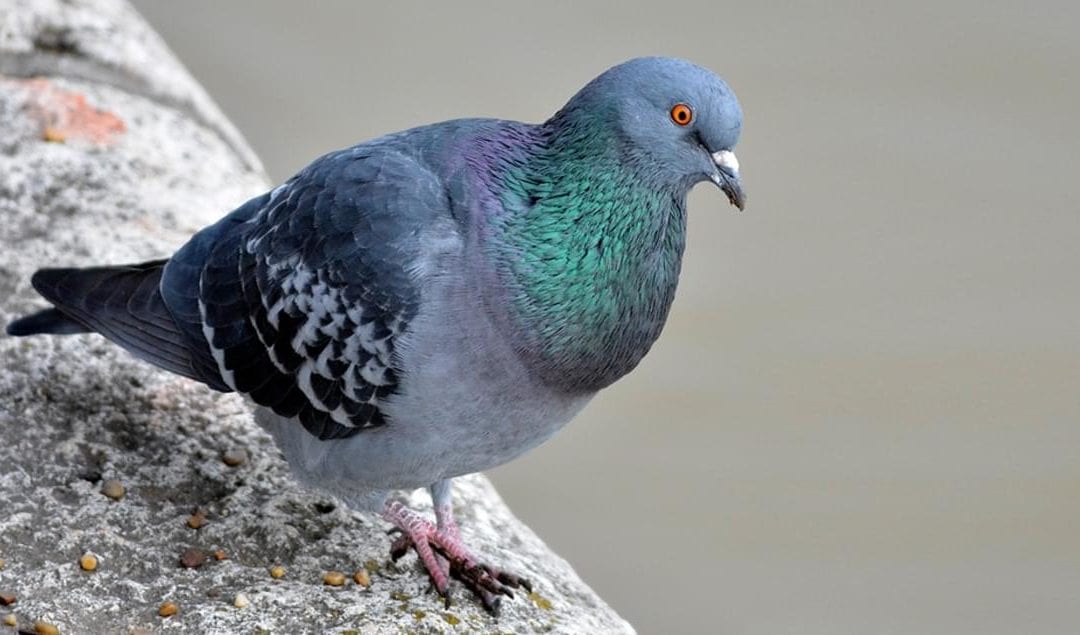
by Pigeon Patrol | Sep 7, 2023 | 4-S Gel Bird repellent, Animal Deterrent Products, Bird Deterrent Products, Bird Law, Bird Netting, Bird Spikes
The development of cities and urban sprawl has made room for wildlife inhabiting human environments. Among birds, feral pigeons (Columba livia domestica) are often present in large numbers in the cities. Problems related to pigeon occurrence result in economic loss and health issues for humans. There are different methods of controlling pigeon populations in urban areas. In this study, we compared three techniques that can be used for pigeon pest control. In two urban industrial sites in Hungary, we used trapping, falconry (in both Study Area 1 and 2) and mist-netting (only in Study Area 2) to remove pigeons. We compared the effectiveness and limitations of each method. Our results show that over 105 days in Study Area 1, we managed to remove 173 individual pigeons. We did not find a significant difference between the effectiveness of trapping or falconry. In Study Area 2, the overall number of pigeons removed was 1412 over a period of 150 days. There, we managed to catch significantly more birds by netting than by trapping or falconry, but the latter two did not differ statistically. We recommend a combination of techniques for pigeon control. Mist-netting can be the most effective way for direct pigeon removal, whereas trapping is an easier but less efficient method to catch pigeons. Falconry is the least efficient in pigeon catching and requires the most investments, but the bird of prey may chase the pigeons away for a short time.
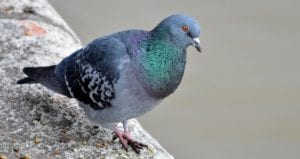
Source
Pigeon Patrol Products & Services is the leading manufacturer and distributor or bird deterrent (control) products in Canada. Pigeon Patrol products have solved pest bird problems in industrial, commercial, and residential settings since 2000, by using safe and humane bird
deterrents with only bird and animal friendly solutions. At Pigeon Patrol, we manufacture and offer a variety of bird deterrents, ranging from Ultra-flex Bird Spikes with UV protection, Bird Netting, 4-S Bird Gel and the best Ultrasonic and audible sound devices on the market today.
Voted Best Canadian wholesaler for Bird Deterrent products ten years in a row.
Contact us at 1 877-4-NO-BIRD,(604) 585-9279 or visit our website at www.pigeonpatrol.ca
Pigeon/Pigeon Patrol / Pigeons Roosing / Vancouver Pigeon Control / Bird Spikes / Bird Control / Bird Deterrent / PIgeon Deterrent / Surrey Pigeon Control / Pest / Seagull deterrent / Vancouver Pigeon Blog / Birds Inside Home / Pigeons in the cities / Ice Pigeons / What to do about pigeons / sparrows, Damage by Sparrows, How to Keep Raccoons Away, Why Are Raccoons Considered Pests / De-fence / Pigeon Nesting / Bird Droppings / Pigeon Dropping / woodpecker control / Professional Bird Control Company / Keep The Birds Away / Birds/rats/seagull/pigeon/woodpecker/dove/sparrow/pidgeon control/pidgeon problem/pidgeon control/flying rats/pigeon problems/ bird netting/bird gel/bird spray/bird nails/bird guard

by Pigeon Patrol | Jul 26, 2023 | Bird Spike, Pigeon Predators, Pigeon Spikes, Pigeons, Pigeons in the News, Raccoons, Sparrows, UltraSonic Bird Control
Pigeons like to land, roost, nest, and make a mess of your roof and they’re not easy to get rid of. Persistence, bird deterrents, and bird exclusion is the key.

Get rid of pigeons on the roof by removing food and water
Remove all food and water sources and never feed the pigeons! In addition, don’t let your neighbors feed the pigeons. The pigeons can eat at your neighbors and nest on your roof!
Pigeons mainly like to eat seeds and grains such as oats, wheat, corn, cereal, sorghum, rice, beans, barley, millet, peas, and sunflower. They also like to eat food scraps left behind by people, including bread crumbs and popcorn. Birdseed is their favorite because it contains a variety of seeds and grains.
When grains or seeds aren’t available pigeons will eat fruit, greens, and occasionally insects, earthworms, and snails. They especially like apples, grapes, berries, lettuce, spinach, and sprouted seeds.
Pigeons need a constant water source. If water isn’t readily available they will leave to find a more suitable place to live. They can find water in birdbaths, gutters, pools, decorative water fountains, puddles, ponds, streams, and even leaves after a rain storm.
Easy to use deterrents to get rid of pigeons on the roof
Aluminum foil, bird deterrent tape, shiny Mylar balloons, wind propelled shiny spinning objects, and plastic decoy scare owls are scary objects to pigeons. Place scary objects on the roof, under the eves, or on the patio. Pigeons don’t like or feel comfortable with scary objects next to their nesting area. They would rather live in a more peaceful environment. One thing to remember, when installing scary objects, is to move them around on a regular basis. Objects that stay in one position don’t scare pigeons.
Wind chimes may deter pigeons. You can give it a try. Pigeons have sensitive hearing and the noise from wind chimes can actually hurt their ears. Pigeons don’t particularly like to nest where loud noises come and go.
Sticky bird gel can also deter pigeons. Apply the sticky gel to your roof where the pigeons are landing and roosting. The gel will make the area uncomfortable for the pigeons to roost.
Metal bird spikes to get rid of pigeons on the roof
Metal anti bird perching spikes can be effective in the right circumstance. They can work pretty well depending on the location you put them. Install them on rooftop edges, ledges, chimneys, and anywhere you see the pigeons land, roost, or nest. Metal bird spikes are mostly maintenance free and can be a permanent solution to deter pigeons from your roof.
Metal anti-perching spikes are harder to install and are not aesthetically appealing.
Wire screens or mesh to get rid of pigeons on the roof
Exclusion is the best solution to pigeon problems in alcoves, around chimneys, under solar panels, on vents, and many other places on the roof. Exclusion with wire bird screen and mesh do offer a permanent solution to pigeon nesting problems.
Our company deals with pigeons nesting underneath solar panels on a daily basis. Solar panels are generally raised 5-12 inches above shingled or tiled roofs, thus creating a void between the panel and the roof. Pigeons can easily go underneath the panel to nest, poop, and make a noticeable and destructive mess. Most, if not all, rooftops that have solar panels need to have pigeons excluded from getting under the solar panels.
Installing wire bird screens or mesh can be difficult and hazardous. It requires being on the roof with tools, a lot of bending over (which is physically demanding), cutting the wire to the proper dimensions, and stapling or screwing on the wire. It is not advised for a home or business owner to install wire screens or mesh because it isn’t safe. You can fall off the roof and get seriously injured or die. To use this method, please hire a professional bird control company.
Bird netting to get rid of pigeons on the roof
If your roof is large and flat, bird netting is an excellent method to use to keep pigeons off your roof. It physically blocks the birds from the roof. If the birds can’t get on the roof, they can’t roost or nest. Bird netting is an exclusion method primarily used for large commercial bird and pigeon control.
A professional bird control operator should install bird netting. If not installed correctly the pigeons can still land on the area and get trapped, as well as other birds. This is cruel. Please hire a professional bird control company for bird netting. It will cost money but it is the safest and most humane way to have bird netting installed.
Remove bird nesting materials and droppings
It is important to remove all pigeon nesting and feces prior to excluding pigeons. Nesting materials and droppings left on the roof will continue to cause damage.
If the roof has a pitch, using a power washer is generally the best way to get rid of pigeon waste. Put a tarp on the ground next to the roof to catch the debris as it is rinsed off the roof. It will be much easier to clean up the pigeon feces on the ground if it is contained on a tarp. Wear a mask to prevent inhaling fumes from pigeon feces and wet the feces down before rinsing off. Histoplasmosis is zoonotic disease that can be found in pigeon feces. Zoonotic diseases are caused by harmful germs like viruses, bacteria, parasites, and fungi that are spread between animals and people.
If the roof is flat, you will have to wet the roof down (to prevent spreading contaminants and disease through the air), then rake and sweep up the pigeon waste prior to rinsing. Again, wear a mask to prevent inhaling fumes from pigeon feces.
Please be careful or better yet, call a professional. Using a power washer on the roof can be slippery and dangerous. Inhaling noxious pigeon feces can cause disease – it is a biohazard.
Importance of discouraging pigeons from nesting on your roof
Pigeons spread disease. There are over 60 diseases birds and their droppings can carry. Some of the diseases from pigeon droppings include salmonella, toxoplasmosis, cryptococcosis, St Louis encephalitis, E.coli, and more. In addition, fungus can grow in pigeon droppings which can cause histoplasmosis. Histoplasmosis is a respiratory disease that may be fatal. Pigeons are also carriers of pests including fleas, mites, ticks, and lice as well as West Nile virus. All of these diseases can pose a serious threat to human health.
Property damage is a big concern with pigeon nesting and droppings. Nests can clog gutters, ventilation pipes, chimneys, and damage electrical equipment. Damaged electrical wires from pigeon nests can even lead to fires. Pigeon droppings are very acidic. The droppings can actually eat away at the roof structure and cause roof leakage.
Pigeon droppings are unsightly. Nobody likes to see or walk on pigeon droppings.
People can slip and fall where pigeon droppings accumulate. When pigeon feces are fresh or rained on it is slippery.
Call a professional
Installing wire bird spikes, wire screens, wire mesh, or bird netting is difficult and hazardous. People can, and do, fall off roofs. People who fall off roofs get seriously injured and even die. It is best to call a professional bird control company when using these methods. Companies that specialize in removing and excluding bird pests (like pigeons) have the know how and safety equipment to get rid of pigeons in a safe and efficient manner from rooftops, alcoves, solar panels, chimneys, window sills, and other areas.
Source
Pigeon Patrol Products & Services is the leading manufacturer and distributor or bird deterrent (control) products in Canada. Pigeon Patrol products have solved pest bird problems in industrial, commercial, and residential settings since 2000, by using safe and humane bird
deterrents with only bird and animal friendly solutions. At Pigeon Patrol, we manufacture and offer a variety of bird deterrents, ranging from Ultra-flex Bird Spikes with UV protection, Bird Netting, 4-S Bird Gel and the best Ultrasonic and audible sound devices on the market today.
Voted Best Canadian wholesaler for Bird Deterrent products ten years in a row.
Contact us at 1 877-4-NO-BIRD,(604) 585-9279 or visit our website at www.pigeonpatrol.ca
Pigeon/Pigeon Patrol / Pigeons Roosing / Vancouver Pigeon Control / Bird Spikes / Bird Control / Bird Deterrent / PIgeon Deterrent / Surrey Pigeon Control / Pest / Seagull deterrent / Vancouver Pigeon Blog / Birds Inside Home / Pigeons in the cities / Ice Pigeons / What to do about pigeons / sparrows, Damage by Sparrows, How to Keep Raccoons Away, Why Are Raccoons Considered Pests / De-fence / Pigeon Nesting / Bird Droppings / Pigeon Dropping / woodpecker control / Professional Bird Control Company / Keep The Birds Away / Birds/rats/seagull/pigeon/woodpecker/dove/sparrow/pidgeon control/pidgeon problem/pidgeon control/flying rats/pigeon problems/ bird netting/bird gel/bird spray/bird nails/bird guard

by Pigeon Patrol | Jul 26, 2023 | Bird Spike, Bird Spikes, Columbidae, Doves, history of pigeons, MBCA, pet bird, Pigeon Control, Pigeon Predators, Pigeon Spikes
You could be forgiven for thinking that pigeons ever lived in the wild. They have been such a constant presence in human cities for so long that they are seen as urban creatures to this day. However, their commonness doesn’t mean they are harmless. Pigeons can be just as troublesome as other common pests, and they can be even more dangerous than you probably realize. Learning how you can prevent a pigeon infestation in your property can protect you from these problems.
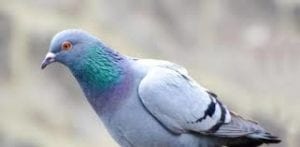
Common But Not Harmless
Pigeons are so common in urban America that most people don’t pay them any real attention. Some people even feed them. It’s this relationship to humans that has allowed pigeons to thrive and reveal their true colors as truly harmful birds. But pigeons haven’t always nested in cities and suburbs, they descend from cave birds that occupied rugged coasts and mountains. Some pigeons still migrate to these natural areas to breed but their reliance on human waste for food and industrial buildings for shelter means pigeons are a permanent fixture in modern life. But make no mistake, pigeons are responsible for the same kinds of damage and danger that other pests are known for.
Damage & Danger Caused By Pigeons
Even though people consider them harmless birds, pigeons have proven time and time again that they are more than just birds picking up breadcrumbs. Pigeons can lead to all of the following problems for humans:
- Disease. Pigeons are known as vermin for a reason, they are carriers of dangerous and fast-spreading diseases like hepatitis and salmonella.
- Parasites. Even if pigeons themselves aren’t carriers of diseases, they can carry ticks and lice that are also harmful and known to transmit pathogens.
- Damage. Pigeons aren’t just a health risk, but a property risk too. With their habit of nesting inside of electrical utilities and roosting inside of people’s roofs, pigeons can cause direct damage and interference to the common amenities of daily life.
- Feces. Not only can pigeons cause damage with their nests, but they can also cause damage to their poop. The highly corrosive droppings can chew through concrete and even metal — not to mention the unpleasant sights and smells that result.
Keeping Pigeons Off Your Property
Since pigeons in Owensboro are everywhere, it’s important to take steps to make your property less attractive to flying invaders in search of shelter or food. Here are some steps you can take:
- Don’t feed them. First and foremost, everyone should take heed of this tip. The more people feed pigeons, the more their populations grow. If you feed them on your property, either directly or via bird feeders, you’re simply inviting them to cause more problems.
- Landscaping. Keeping trees trimmed away from any structures will prevent pigeons from having an easy place to land that’s right next to your property.
- Anti-roosting. There is a wide range of spikes, grates, and covers that are available for commercial and residential properties, which prevent pigeons from landing or nesting.
Take Proper Action
Because pigeons are such a common part of modern life, anyone can fall victim to the problems they cause. Once they’ve taken hold in an area, pigeon populations can grow simply massive. Rather than try to deal with prevention and removal on your own, enlist the help of trained experts who can assist you. At Action Pest Control, our friendly staff can provide you with even more tips to prevent and spot the signs of pigeon damage. If our inspections reveal an infestation, we’ll work to get rid of it and work with you on steps for future prevention.
Don’t get complacent when it comes to pigeons, act today.
Source
Pigeon Patrol Products & Services is the leading manufacturer and distributor or bird deterrent (control) products in Canada. Pigeon Patrol products have solved pest bird problems in industrial, commercial, and residential settings since 2000, by using safe and humane bird
deterrents with only bird and animal friendly solutions. At Pigeon Patrol, we manufacture and offer a variety of bird deterrents, ranging from Ultra-flex Bird Spikes with UV protection, Bird Netting, 4-S Bird Gel and the best Ultrasonic and audible sound devices on the market today.
Voted Best Canadian wholesaler for Bird Deterrent products ten years in a row.
Contact us at 1 877-4-NO-BIRD,(604) 585-9279 or visit our website at www.pigeonpatrol.ca
Pigeon/Pigeon Patrol / Pigeons Roosing / Vancouver Pigeon Control / Bird Spikes / Bird Control / Bird Deterrent / PIgeon Deterrent / Surrey Pigeon Control / Pest / Seagull deterrent / Vancouver Pigeon Blog / Birds Inside Home / Pigeons in the cities / Ice Pigeons / What to do about pigeons / sparrows, Damage by Sparrows, How to Keep Raccoons Away, Why Are Raccoons Considered Pests / De-fence / Pigeon Nesting / Bird Droppings / Pigeon Dropping / woodpecker control / Professional Bird Control Company / Keep The Birds Away / Birds/rats/seagull/pigeon/woodpecker/dove/sparrow/pidgeon control/pidgeon problem/pidgeon control/flying rats/pigeon problems/ bird netting/bird gel/bird spray/bird nails/bird guard

by Pigeon Patrol | Jul 26, 2023 | 4-S Gel Bird repellent, Animal Deterrent Products, Bird Deterrent Products, Bird Law, Bird Netting, Bird Spikes, Columbidae, Doves
How to Deter Birds From the Garden
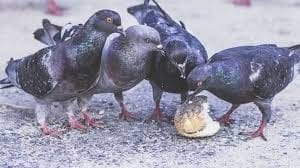
Birds are not picky eaters. They can feed on a number of things: seeds, grains, fruit, breadcrumbs, worms, and more.
Bird control is a hard job, especially if you have a vegetable garden. You’d want to keep birds as far away as possible. Even though it’s not easy, there are a few things you can do.
- Make a scarecrow or use decoy hawks and owls. Also, fake snakes could scare some of the birds.
- Use old CDs as shiny reflective objects to scare the birds. Hang a few of them every couple of meters around your garden.
- Buy or make bird nettings from cord or wire to protect your crops.
- Plants to distract them. You want to keep your crops intact and you’ve lost all hope of keeping the birds away? You can distract them by planting other seductive plants away from your vegetables. Plants like buckwheat, sunflowers, or some berries can be used to attract pigeons and other birds to the opposite side of your garden.
How to Keep Pigeons Away From Bird Feeders
Pigeons are a typical example of a bully bird that doesn’t allow smaller birds to get food. They are larger than most birds you can find in urban areas and this gives them some advantage in the race to get the food people leave behind.
You can keep pigeons and other bully birds away from your bird feeders by making it hard for them to reach it. How? By enclosing the bird feeder with hardware cloth with openings big enough so only smaller birds can get through and feed (5cm should be more than enough).
There are caged-in trays or tube bird feeders sold in garden or hardware stores you can purchase. The tray or tube is placed several centimetres inside of the cage and it makes it difficult for larger bully birds to eat the seeds.
Some bird species, like pigeons, the European starling, house sparrows, feed on the ground. If you remove all food sources from the ground and make a hanging bird feeder under a small shelter, they may get scared to get under the cover. With the lack of food, they will soon stop coming.
How to Get Rid of Pigeons With Poison
Poisoning pigeons and other birds is not recommended. There’s no need to kill the birds. You can simply take some measures to keep them away from your home or business building. A dead pigeon, filled with poison, laying somewhere in your garden might cause you more problems than a live one. Plus, you should consider the chance of poisoning other animals alongside the pigeons. Refrain from using poison as a bird control method, please.
How to Get Rid of Pigeons in Your Garden With Sound
Sounds can prove to be one of the most effective ways to keep birds away. You will need to invest some money to do it the right way but it will be worth it. There are a number of sounds that can do the trick.
Audible repellers produce frightening bird sounds that scare pigeons and other birds. There are different sounds – distressed cries of birds, shrieks of predator birds. The devices can be bought in most gardening stores.
Ultrasonic repellers emit high-frequency sounds that people cannot hear. The sounds are at a specific frequency targeted at birds.
How to Get Rid of Pigeons From Trees
Gather aluminium plates, mirrors, and other shiny objects. Hang them on your trees and they’ll create movements and reflect the sunlight. Thus they will scare off the pigeons and other birds from roosting on your trees.
Put a predator bird statue on the tree to scare the pigeons off. Most professional exterminators rely on this method as well.
Wind chimes can also scare pigeons away with the sound and movement they make, but if the pigeons get used to them they will not hesitate to roost on your trees.
Natural Pigeon Repellents and Control Methods
You have to be careful with the homemade repellents. Birds, especially pigeons are smart animals and can see through your scarecrows and tricks.
Homemade pigeon repellents and other repelling methods should be combined with preventive methods for full effect and protection.
Other natural ways to deal with bird control
Remove food and water sources. Keeping your property clean from seeds, grains and other food remains is a convenient way to have birds and pigeons skip your home and go to your neighbour’s’ yard. This can be done by regularly sweeping floors, keeping your garbage in the garbage can with a closed lid on it.
Gardens should be protected as well, either with decoy predator birds statues, sprinklers, sound repellents, or nets.
Make sure you don’t leave standing water anywhere around your home.
Removing the nest is essential because you are putting your home at risk of getting infested with bird mites.
Homemade Pigeon Repellents
As mentioned above, there are a number of bird repellents that can get the job done. But if you wish to deal with the issue without having to put a fake owl or spikes on your roof, you can try to make some homemade repellents.
1) Repel pigeons with honey – Applying a thin layer of honey to your roof or balcony will inconvenience birds and they won’t roost there. Honey’s stickiness will keep them away as birds do not like sticky surfaces. You can use other sticky products as well. You may have to reapply the sticky substance from time to time because it will wear off.
2) Hose the birds. You can instal automatic sprinkles on your roof or balcony to spray them when they land. Or you can do the work when you notice them. Hosing them a couple of times should be enough to teach them a lesson and keep them away.
3) Spicy pigeon repellent
Pigeons and other birds do not like spices. Which makes it a fantastic natural repellent for all kinds of birds.
4) Pepper powder can be used to repel pigeons from your balcony and roof. Sprinkle more of it on their roosting places and in other places they may roost. You can use black pepper, cayenne pepper or cinnamon powder to keep the pigeons off your property. You will have to reapply it after rainy or windy days.
5) Chilli powder is another spicy repellent that you can use. Throw chilli solution in the birds’ roosting places and watch how they stop coming back. Reapplying it may be also necessary after windy and rainy days. The chilli is also unpleasant to the pigeons and will drive them away from your home.
Take measures to keep birds away from your home now or call an expert to do it for you.
Source
Pigeon Patrol Products & Services is the leading manufacturer and distributor or bird deterrent (control) products in Canada. Pigeon Patrol products have solved pest bird problems in industrial, commercial, and residential settings since 2000, by using safe and humane bird
deterrents with only bird and animal friendly solutions. At Pigeon Patrol, we manufacture and offer a variety of bird deterrents, ranging from Ultra-flex Bird Spikes with UV protection, Bird Netting, 4-S Bird Gel and the best Ultrasonic and audible sound devices on the market today.
Voted Best Canadian wholesaler for Bird Deterrent products ten years in a row.
Contact us at 1 877-4-NO-BIRD,(604) 585-9279 or visit our website at www.pigeonpatrol.ca
Pigeon/Pigeon Patrol / Pigeons Roosing / Vancouver Pigeon Control / Bird Spikes / Bird Control / Bird Deterrent / PIgeon Deterrent / Surrey Pigeon Control / Pest / Seagull deterrent / Vancouver Pigeon Blog / Birds Inside Home / Pigeons in the cities / Ice Pigeons / What to do about pigeons / sparrows, Damage by Sparrows, How to Keep Raccoons Away, Why Are Raccoons Considered Pests / De-fence / Pigeon Nesting / Bird Droppings / Pigeon Dropping / woodpecker control / Professional Bird Control Company / Keep The Birds Away / Birds/rats/seagull/pigeon/woodpecker/dove/sparrow/pidgeon control/pidgeon problem/pidgeon control/flying rats/pigeon problems/ bird netting/bird gel/bird spray/bird nails/bird guard

by Pigeon Patrol | Jul 26, 2023 | history of pigeons, MBCA, pet bird, Pigeon Control, Pigeon Droppings, Pigeon Patrol's Services, Pigeon Predators
Do you have a problem with pigeons in your home? Not only can this be frustrating, but pigeons can also carry germs that can have a negative impact on your health. This is why it is important to seek expert pigeon removal. With that in mind, in this blog post, we are going to reveal everything you need to know about pigeon removal, including some of the steps you can take to keep pigeons away from your home.

Why pigeons are dangerous
You may have heard that pigeons carry diseases. This information is true. In fact, pigeons spread an alarming number of diseases, as they carry more than 60 varieties of pathogens. Diseases are transmitted via pigeon droppings. Of course, you can make sure that you never pick up or touch pigeon droppings. Nevertheless, it is a little bit more complicated than that. When pigeon droppings that are infected with viruses or bacteria are left on windowsills or pavements, for example, they will start to dry out. When this happens, the droppings then turn into a powder. The powder is either kicked into the air or blown about, which causes it to be inhaled by people without them knowing. When this powder is inhaled in this manner, this is how diseases can be spread to humans.
What are some of the common pathogens that pigeons can transmit to humans?
There are a number of different pathogens that humans can transmit to humans, so let’s take a look at them in further detail:
- Salmonellosis – This is a disease that you are probably more familiar with in terms of food poisoning. This disease when the infected droppings of a pigeon turn into dust, as mentioned earlier, and ends up finding its way to food preparation surfaces and food.
- Candidiasis – This disease is a respiratory condition that happens as a consequence of the years or fungus that is found within pigeon droppings. The areas that are impacted by this type of disease include the respiratory system, mouth, and skin, as well as the intestines and also the urogenital tract, especially in females.
- Histoplasmosis – This is a respiratory disease that can happen as a consequence of the fungus that grows in pigeon droppings. This disease can be fatal.
- St. Louis encephalitis – This is a form of the disease that mosquitoes spread once they have fed on a pigeon that carries this disease. This results in inflammation of the nervous system, which can be a big concern no matter how old you are. Nevertheless, it can be especially serious and sometimes even fatal in those who are 60-years-old or older. Symptoms include fever, headache, and drowsiness.
- E.coli – Last but not least, there is e.coli, which happens when bird droppings land in a supply of food or water, after which they are consumed by humans. By washing food before eating, you should be able to avoid this. Symptoms include the likes of cramps, fever, and nausea.
It is also worth pointing out that pigeons carry the West Nile virus, as well as carrying fleas and mites, all of which can result in discomfort and a number of severe medical problems for humans.
How to keep pigeons away from your home
There are several different steps that you can take to try and keep pigeons away from your property. One of the things that you can do is make the roosting areas as unappealing as possible. Here are some of the best opinions here:
- Don’t feed them – This may sound obvious, but it is important to make sure that you do not feed the pigeons. As is the case with the majority of animals, if you feed them, they are only going to keep coming back. Plus, the food may attract even more pigeons and potentially other animals as well!
- Install coping covers to window ledges and sills – If you do not have any flat surfaces for nests to be built and balanced on, the pigeons are probably going to move elsewhere and find a different home.
- Tie a string across the roosting area – Strings that are tied approximately one-inch
- Install anti-roosting spike stripes – Select strategical sports for the installation of anti-roosting spike strips. This includes the likes of window ledges and sills.
It is also a wise idea to inspect the outside of your home and to make sure there are no entry points for pigeons. Pay special attention to your attic and eaves. If any openings are present, you should seal them. You can start by sealing the attic should there by any openings that are large enough for a pigeon to get through them. You can either place a metal wire mesh or you could seal the openings completely.
Next, you should cap your chimney if your home has one. Using a metal wire cage to cap your chimney is a wise idea because pigeons are well known for creating nests that can block this area of your home. A bird could die through getting trapped inside of the chimney as well, so blocking off the chimney is better all around!
In addition to this, you should use netting or mesh surrounding the nesting areas. This is advisable especially for those that have air conditioning units in their home. This is because pigeons love to create their nests on trays underneath the unit.
Of course, you can also hire professionals to make sure that there are some strategies in place so that pigeons are deterred from your property.
Source
Pigeon Patrol Products & Services is the leading manufacturer and distributor or bird deterrent (control) products in Canada. Pigeon Patrol products have solved pest bird problems in industrial, commercial, and residential settings since 2000, by using safe and humane bird
deterrents with only bird and animal friendly solutions. At Pigeon Patrol, we manufacture and offer a variety of bird deterrents, ranging from Ultra-flex Bird Spikes with UV protection, Bird Netting, 4-S Bird Gel and the best Ultrasonic and audible sound devices on the market today.
Voted Best Canadian wholesaler for Bird Deterrent products ten years in a row.
Contact us at 1 877-4-NO-BIRD,(604) 585-9279 or visit our website at www.pigeonpatrol.ca
Pigeon/Pigeon Patrol / Pigeons Roosing / Vancouver Pigeon Control / Bird Spikes / Bird Control / Bird Deterrent / PIgeon Deterrent / Surrey Pigeon Control / Pest / Seagull deterrent / Vancouver Pigeon Blog / Birds Inside Home / Pigeons in the cities / Ice Pigeons / What to do about pigeons / sparrows, Damage by Sparrows, How to Keep Raccoons Away, Why Are Raccoons Considered Pests / De-fence / Pigeon Nesting / Bird Droppings / Pigeon Dropping / woodpecker control / Professional Bird Control Company / Keep The Birds Away / Birds/rats/seagull/pigeon/woodpecker/dove/sparrow/pidgeon control/pidgeon problem/pidgeon control/flying rats/pigeon problems/ bird netting/bird gel/bird spray/bird nails/bird guard

by Pigeon Patrol | Jul 26, 2023 | Bird Spike, Pigeon Predators, Pigeon Spikes, Pigeons, Pigeons in the News, Raccoons, Sparrows, UltraSonic Bird Control
While out in nature, we all enjoy watching for and spotting birds. Even within cities, songbirds perched in trees add an enjoyable taste of the pastoral within these urban settings. However, pigeons may not be as welcome wandering the streets of our cities. Pigeons are used to being around humans, and they can be quite brazen about coming up to people asking for food.

You likely wont think about pigeons being a problem until they become one. These birds can be found all over the country and are quite adaptable as they nest anywhere from warehouses and commercial buildings to cliffs. They reproduce quickly, and as they grow in number, their feces will become a problem. They also eat almost anything they can find including scraps of food.
Pigeons actually aren’t native to North America. They were introduced to this continent from Europe in the 1600s, and, throughout history, humans used them for food and entertainment. As a result, this bird is quite comfortable around people.
Problems Pigeons Pose
While pigeons may seem like a normal resident in cities, they can pose a risk and become a problem if their population grows too large. Pigeons are especially a problem pest for commercial property owners and business owners.
- Pigeon droppings cause buildings to deteriorate more quickly and are costly to clean up.
- Their droppings are toxic. They not only smell, but they can also kill plants.
- Pigeon droppings pose a health risk spreading bacteria and diseases including histoplasmosis, cryptococcosis, psittacosis, and E.Coli.
- Pigeons can be an aesthetic issue making a building look unclean.
- Pigeons are bad for business as they will ruthlessly beg for and steal food.
- Lastly, pigeons sometimes get caught in machinery and roof vents which means costly repairs.
Overall, dealing with pigeons around your business will likely damage your property and your reputation.
Preventing Pigeons Around Your Business
One of the best ways to keep pigeons from posing an issue for your business is to prevent their population from growing around your building. There are some measures that you can take to keep pigeons away. Most effectively, you can eliminate areas where they like to roost or nest.
- Use netting to keep them from being able to nest.
- Prevent pigeons from landing using spikes or other methods.
- Use plastic snakes or scare balloons, although these are only a short term solution.
- Do not allow others to feed pigeons near your business.
- Use outdoor trash receptacles with lids.
However, because pigeons are so used to being around humans and are adept at making nests, it can be difficult to prevent them from becoming a problem once they start to gather.
Getting Rid of Pigeon Problems
Pigeons can be a problem year-long, and they can be hard to prevent and get rid of on your own. The best way to get rid of a pigeon infestation is to contact the specialists at Quik-Kill Pest Eliminators. We use effective methods such as netting and fogging to keep pigeons at bay.
Our pigeon control services also include a humane anti-roost system that keeps them from nesting using spikes, coils, and gels. In short, our services can remove pigeons while still keeping them alive.
Source
Pigeon Patrol Products & Services is the leading manufacturer and distributor or bird deterrent (control) products in Canada. Pigeon Patrol products have solved pest bird problems in industrial, commercial, and residential settings since 2000, by using safe and humane bird
deterrents with only bird and animal friendly solutions. At Pigeon Patrol, we manufacture and offer a variety of bird deterrents, ranging from Ultra-flex Bird Spikes with UV protection, Bird Netting, 4-S Bird Gel and the best Ultrasonic and audible sound devices on the market today.
Voted Best Canadian wholesaler for Bird Deterrent products ten years in a row.
Contact us at 1 877-4-NO-BIRD,(604) 585-9279 or visit our website at www.pigeonpatrol.ca
Pigeon/Pigeon Patrol / Pigeons Roosing / Vancouver Pigeon Control / Bird Spikes / Bird Control / Bird Deterrent / PIgeon Deterrent / Surrey Pigeon Control / Pest / Seagull deterrent / Vancouver Pigeon Blog / Birds Inside Home / Pigeons in the cities / Ice Pigeons / What to do about pigeons / sparrows, Damage by Sparrows, How to Keep Raccoons Away, Why Are Raccoons Considered Pests / De-fence / Pigeon Nesting / Bird Droppings / Pigeon Dropping / woodpecker control / Professional Bird Control Company / Keep The Birds Away / Birds/rats/seagull/pigeon/woodpecker/dove/sparrow/pidgeon control/pidgeon problem/pidgeon control/flying rats/pigeon problems/ bird netting/bird gel/bird spray/bird nails/bird guard
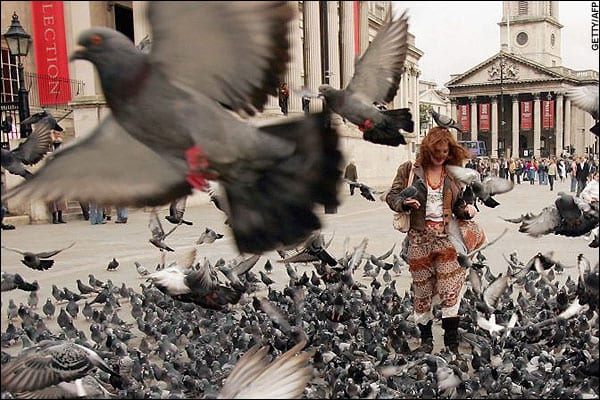
by Pigeon Patrol | Jul 20, 2023 | Bird Spike, Pigeon Predators, Pigeon Spikes, Pigeons, Pigeons in the News, Raccoons, Sparrows, UltraSonic Bird Control
Brussels is massively dispensing contraceptive corn pellets to pigeons in the region in an effort to humanely reduce the ever-growing population.
Pigeons are a nuisance for many reasons, but their droppings, aside from being an eyesore, also cause material damage. The highly acidic excrement can erode materials such as marble, limestone and concrete, according to reports from Bruzz.
And the cost of cleaning excrements is no less eye-watering, costing between €16 and €23 per pigeon every year.
The region has tried various methods to control the pigeon population for decades but is now stepping up measures. Since the start of last month, the catching and killing of pigeons – a tactic used in the past – was banned. Another control method, the surgical sterilisation of pigeons by the City of Brussels was previously banned on grounds of cruelty.
The City of Brussels is now turning to the R-12 pigeon pill: a corn pellet coated with a medicine that helps birds against parasites as well as with a contraceptive component. It is already used in Laeken and Ixelles, as well as Leuven.
At Square Clémentine, where the first seed dispenser was installed in 2019, the population dropped by 30% from 180 pigeons in February 2019 to 130 pigeons one year later. By July 2020, it had halved.
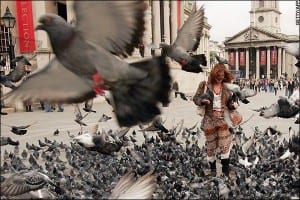
Who Ya gonna Call!!
Targeted action
This method is already used in other European cities, such as Barcelona. To distribute the pellets, the municipality works together with Limburg-based Vets for City Pigeons.
“We work with maize pellets treated with R12 or nicarbazine,” the company’s vet Pieter Colla told Bruzz. “Nicarbazine is actually a product against intestinal parasites. But it has the side effect of making pigeons infertile because it prevents fruit from developing in the eggs.” He stressed that the pellets have no harmful effect on the environment, as they aren’t real hormonal products.
He added that this corn is only given to dominant pigeons, about 15% of the local colony, as they are the ones engaged in reproduction. This is done via automatic dispensers which switch on one hour after sunrise every day. The pellets are then dispensed to dominant pigeons that have been conditioned to eat them.
The effect of the pill disappears in around six days, after which the animal can reproduce, meaning the dispensers have to continually be refilled. If uncontrolled, city pigeons can have up to 12 young per year.
In the coming few weeks and months, more dispensers will be placed across the city, mainly in places where the city received the most complaints about the animals.
Source
Pigeon Patrol Products & Services is the leading manufacturer and distributor or bird deterrent (control) products in Canada. Pigeon Patrol products have solved pest bird problems in industrial, commercial, and residential settings since 2000, by using safe and humane bird
deterrents with only bird and animal friendly solutions. At Pigeon Patrol, we manufacture and offer a variety of bird deterrents, ranging from Ultra-flex Bird Spikes with UV protection, Bird Netting, 4-S Bird Gel and the best Ultrasonic and audible sound devices on the market today.
Voted Best Canadian wholesaler for Bird Deterrent products ten years in a row.
Contact us at 1 877-4-NO-BIRD,(604) 585-9279 or visit our website at www.pigeonpatrol.ca
Pigeon/Pigeon Patrol / Pigeons Roosing / Vancouver Pigeon Control / Bird Spikes / Bird Control / Bird Deterrent / PIgeon Deterrent / Surrey Pigeon Control / Pest / Seagull deterrent / Vancouver Pigeon Blog / Birds Inside Home / Pigeons in the cities / Ice Pigeons / What to do about pigeons / sparrows, Damage by Sparrows, How to Keep Raccoons Away, Why Are Raccoons Considered Pests / De-fence / Pigeon Nesting / Bird Droppings / Pigeon Dropping / woodpecker control / Professional Bird Control Company / Keep The Birds Away / Birds/rats/seagull/pigeon/woodpecker/dove/sparrow/pidgeon control/pidgeon problem/pidgeon control/flying rats/pigeon problems/ bird netting/bird gel/bird spray/bird nails/bird guard
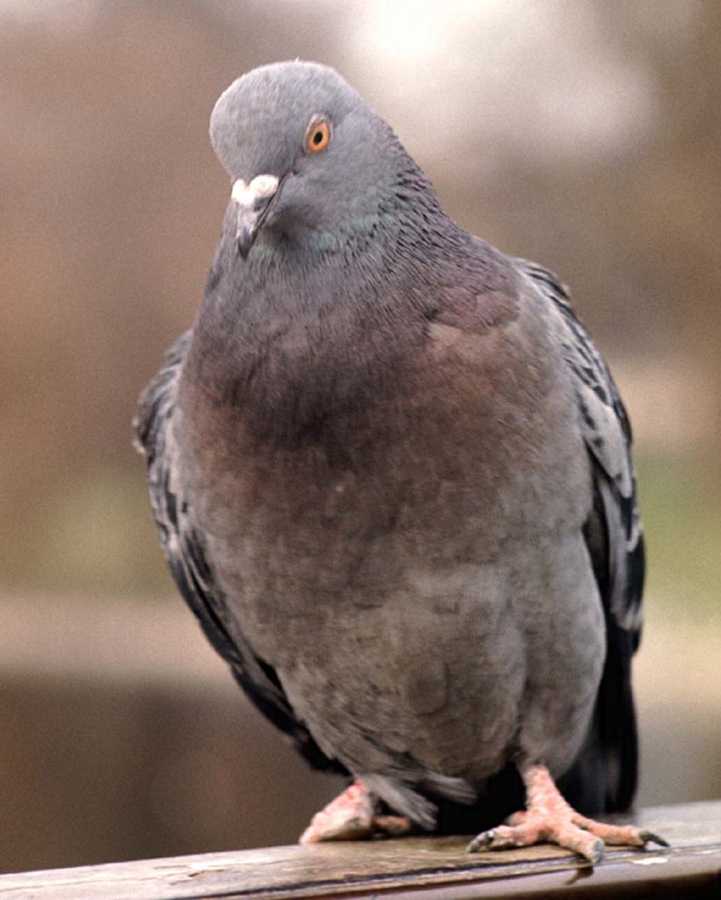
by Pigeon Patrol | Jul 20, 2023 | Bird Spike, Pigeon Droppings, Pigeon Patrol's Services, Pigeon Predators, Pigeon Spikes, Pigeons, Pigeons in the News
Chickens bob their heads while walking. So do cranes, magpies and quails. In fact, head bobbing is a unique feature in birds and occurs in at least 8 of the 27 families of birds.
There are a few theories why some birds bob their heads when they walk:
- Assists with balance
- Provides depth perception
- Sharpens their vision
However, most studies suggest that birds in motion bob their heads to stabilize their visual surroundings. In comparison, we rely more on our eye movements, not our head movements, to catch and hold images while in motion.
Picture a pigeon on a moving treadmill. What do you think would happen as the pigeon walks with the speed of the treadmill and its environment remains relatively the same? Dr. Barrie J Frost (1978) did this experiment and the pigeon’s head did not bob.
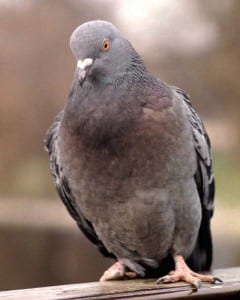
Dr. Mark Friedman (1975) also conducted a series of experiments to test the head bobbing actions of birds, using doves. His research demonstrated that the head movement is controlled more by visual stimulation than movement of the body.
Scientists continue to research head bobbing in birds. For example, scientists are currently investigating question such as “Why do some birds exhibit head bobbing, while other do not?” For more information on this topic see the related Web sites section.
Source
Pigeon Patrol Products & Services is the leading manufacturer and distributor or bird deterrent (control) products in Canada. Pigeon Patrol products have solved pest bird problems in industrial, commercial, and residential settings since 2000, by using safe and humane bird
deterrents with only bird and animal friendly solutions. At Pigeon Patrol, we manufacture and offer a variety of bird deterrents, ranging from Ultra-flex Bird Spikes with UV protection, Bird Netting, 4-S Bird Gel and the best Ultrasonic and audible sound devices on the market today.
Voted Best Canadian wholesaler for Bird Deterrent products ten years in a row.
Contact us at 1 877-4-NO-BIRD,(604) 585-9279 or visit our website at www.pigeonpatrol.ca
Pigeon/Pigeon Patrol / Pigeons Roosing / Vancouver Pigeon Control / Bird Spikes / Bird Control / Bird Deterrent / PIgeon Deterrent / Surrey Pigeon Control / Pest / Seagull deterrent / Vancouver Pigeon Blog / Birds Inside Home / Pigeons in the cities / Ice Pigeons / What to do about pigeons / sparrows, Damage by Sparrows, How to Keep Raccoons Away, Why Are Raccoons Considered Pests / De-fence / Pigeon Nesting / Bird Droppings / Pigeon Dropping / woodpecker control / Professional Bird Control Company / Keep The Birds Away / Birds/rats/seagull/pigeon/woodpecker/dove/sparrow/pidgeon control/pidgeon problem/pidgeon control/flying rats/pigeon problems/ bird netting/bird gel/bird spray/bird nails/bird guard
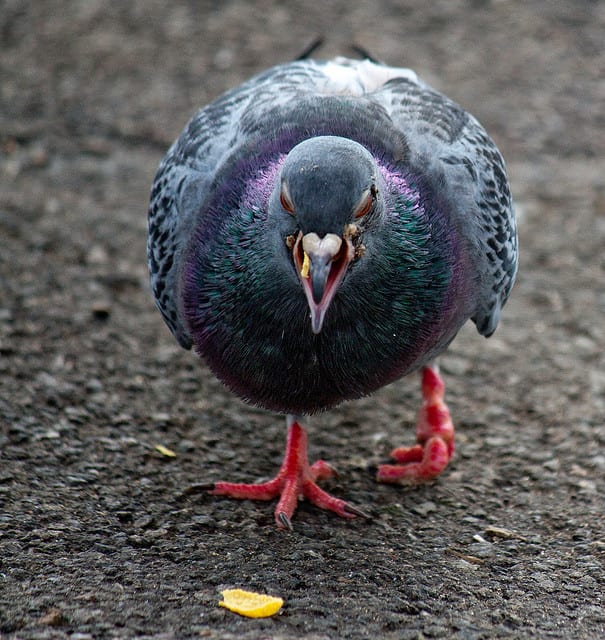
by Pigeon Patrol | Jul 20, 2023 | 4-S Gel Bird repellent, Animal Deterrent Products, Bird Deterrent Products, Bird Law, Bird Netting, Bird Spikes
We trap, poison or push these nuisance birds away from bridges and the ledges of downtown buildings, but perhaps pigeons are just misunderstood. At least, that’s what a group of university researchers think. They’re testing a new, er, old approach, really, to the problem of pigeon poop.
By this time next year, they’ll have at least one attractive stone “pigeon cote” to house the birds, attracting them to one place in order to concentrate the poop and use it as fertilizer. It works with nature, rather than controlling it, and aims to restore an ancient, mutually-beneficial relationship that modern society simply forgot.
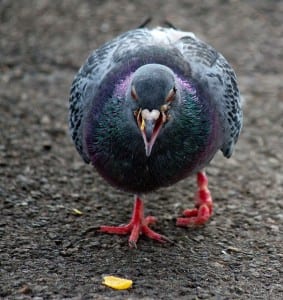
Yuck. Yes, I know. But intriguing as well. As city council heads into a week full of tough environmental decisions, I wonder if there’s a broader wisdom here that can help.
But first, these pigeons.
Pigeons really are the flying kings of poop. One study found they poop up to 40 times a day, although English researcher Kristine Kowalchuk (’12 PhD) would put that closer to 10, based on what she saw from a rescued baby pigeon.
She was walking out of the Art Gallery of Alberta one afternoon in the spring of 2016 when she found the tiny bird sitting quietly in the gutter. She picked it up, carried it home and raised it in her spare room until it was too big and messy to keep any longer.
That’s what got her thinking about pigeons, and the many references to squab (young pigeon) and the excellence of pigeon droppings as fertilizer she found littered throughout 17th century cookbooks and farming manuals during her English PhD.
It turns out farmers across Europe and North Africa would create large houses for free-ranging pigeons in fields or above their homes so that the birds would roost in one spot. That way both the young birds and poop could be harvested.
Now Kowalchuk, along with UAlberta professors Debra Davidson, an environmental sociologist, Howard Nye (Philosophy) and Aidan Rowe (Art & Design) using a $7,500 grant to build their own pigeon cote. It’s being built on a farm near Camrose because none of the five organizations with pigeon problems they contacted here in the city would entertain the idea.
They’re hoping a year observing the cote in action will change attitudes.
“We have so many misconceptions and cultural bias,” says Kowalchuk, citing studies measuring the risk of getting sick from being around the poop as tiny, akin to getting sick from a pet dog or breaking a leg from slipping on a dandelion. The person shovelling it out periodically would simply wear a mask.
Plus, the cote itself doesn’t increase populations; only feeding them does that, she says. “Our parks and flower beds could all benefit. Another way of looking at pigeons is entirely possible.”
I love the simplicity of Kowalchuk’s approach. I love the way it turns our pigeon problem on its head, resets a relationship.
That’s why I’ll be pondering pigeons as council wrestles with the environment file next week: first with its greenhouse gas reduction targets on Tuesday, then with waste management Thursday and a proposed ban on single-use plastics.
Because pigeon control isn’t the only area where humans expect we can control and build our way out of a mess with technology. We pave large parking lots and wonder why we have flooding. We cut trees and seem puzzled at the heat and dust of the city. We set out one big bag of all our trash and wonder why garbage fees keep rising.
I don’t think a single-use plastic ban will help much. It’s too narrow and complicated to administer. I’d rather see small fees for bags at the grocery store combined with measures that actually change a culture – like neighbourhood-level composting with free soil in exchange for yard waste drop-offs.
As for curbing carbon emissions, city officials have a long list of actions needed, from incentivizing electric cars to expanding district energy. But I don’t think technology is enough to solve this issue, not without a cultural change. Perhaps the lessons of pigeon poop will help there, too.
Source
Pigeon Patrol Products & Services is the leading manufacturer and distributor or bird deterrent (control) products in Canada. Pigeon Patrol products have solved pest bird problems in industrial, commercial, and residential settings since 2000, by using safe and humane bird
deterrents with only bird and animal friendly solutions. At Pigeon Patrol, we manufacture and offer a variety of bird deterrents, ranging from Ultra-flex Bird Spikes with UV protection, Bird Netting, 4-S Bird Gel and the best Ultrasonic and audible sound devices on the market today.
Voted Best Canadian wholesaler for Bird Deterrent products ten years in a row.
Contact us at 1 877-4-NO-BIRD,(604) 585-9279 or visit our website at www.pigeonpatrol.ca
Pigeon/Pigeon Patrol / Pigeons Roosing / Vancouver Pigeon Control / Bird Spikes / Bird Control / Bird Deterrent / PIgeon Deterrent / Surrey Pigeon Control / Pest / Seagull deterrent / Vancouver Pigeon Blog / Birds Inside Home / Pigeons in the cities / Ice Pigeons / What to do about pigeons / sparrows, Damage by Sparrows, How to Keep Raccoons Away, Why Are Raccoons Considered Pests / De-fence / Pigeon Nesting / Bird Droppings / Pigeon Dropping / woodpecker control / Professional Bird Control Company / Keep The Birds Away / Birds/rats/seagull/pigeon/woodpecker/dove/sparrow/pidgeon control/pidgeon problem/pidgeon control/flying rats/pigeon problems/ bird netting/bird gel/bird spray/bird nails/bird guard
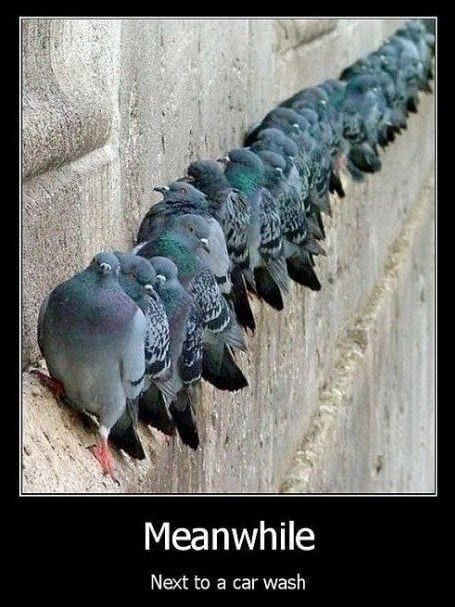
by Pigeon Patrol | Jul 20, 2023 | Bird Spike, Pigeon Predators, Pigeon Spikes, Pigeons, Pigeons in the News, Raccoons, Sparrows, UltraSonic Bird Control
Once used to deliver messages, these days pigeons are often reviled as urban pests.
The birds, common in major cities such as Paris and London, can often be seen struggling to walk due to missing toes and deformed feet.
Now a team of researchers in the French capital have come up with an interesting explanation for the phenomenon.
Previous research had suggested pigeons lose toes due to infections or chemical pollutants, but a new study by scientists from the National Museum of Natural History (MNHN) and the University of Lyon suggests that human hair may in fact be a culprit.
Study co-author Frédéric Jiguet, of MNHN, told CNN he came up with the idea for the study after noticing mutilated pigeons as he walked through the Jardin des Plantes, a botanical garden, in Paris.
“Pigeons have a very bad reputation in Paris, and actually everywhere in the world,” said Jiguet.
“People get confused, they think pigeons are dirty because they see them wandering about with stumps for legs, wandering through rubbish.”
However, the birds are actually “victims of our pollution, of our activities,” said Jiguet.
Researchers studied the extent of pigeon toe mutilations at 46 sites around the French capital.
Jiguet and the team found that toe mutilation “tended to increase with the density of hairdressers,” according to the study.
Jiguet said pigeons could lose digits which get stuck in human hair, a phenomenon known as “stringfeet.”
“When they walk, they can trip on strings or hair,” he said.
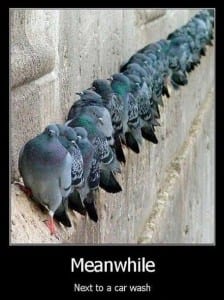
“The string might just fall, but sometimes it forms a knot around a toe, and in the end the toe dies and falls off.”
Pigeons also have fewer toes in areas with more air and noise pollution, providing a useful gauge for the quality of urban environments.
Jiguet said that the study showed “the more human activity in an area, the less toes pigeons have” and “the more green spaces, the more toes they have.”
“It would be interesting to look in all major cities in the world, to look at how many toes pigeons have in order to estimate the quality of the environment and of the pollution,” added Jiguet.
The study was published in the journal Biological Conservation.
Source
Pigeon Patrol Products & Services is the leading manufacturer and distributor or bird deterrent (control) products in Canada. Pigeon Patrol products have solved pest bird problems in industrial, commercial, and residential settings since 2000, by using safe and humane bird
deterrents with only bird and animal friendly solutions. At Pigeon Patrol, we manufacture and offer a variety of bird deterrents, ranging from Ultra-flex Bird Spikes with UV protection, Bird Netting, 4-S Bird Gel and the best Ultrasonic and audible sound devices on the market today.
Voted Best Canadian wholesaler for Bird Deterrent products ten years in a row.
Contact us at 1 877-4-NO-BIRD,(604) 585-9279 or visit our website at www.pigeonpatrol.ca
Pigeon/Pigeon Patrol / Pigeons Roosing / Vancouver Pigeon Control / Bird Spikes / Bird Control / Bird Deterrent / PIgeon Deterrent / Surrey Pigeon Control / Pest / Seagull deterrent / Vancouver Pigeon Blog / Birds Inside Home / Pigeons in the cities / Ice Pigeons / What to do about pigeons / sparrows, Damage by Sparrows, How to Keep Raccoons Away, Why Are Raccoons Considered Pests / De-fence / Pigeon Nesting / Bird Droppings / Pigeon Dropping / woodpecker control / Professional Bird Control Company / Keep The Birds Away / Birds/rats/seagull/pigeon/woodpecker/dove/sparrow/pidgeon control/pidgeon problem/pidgeon control/flying rats/pigeon problems/ bird netting/bird gel/bird spray/bird nails/bird guard
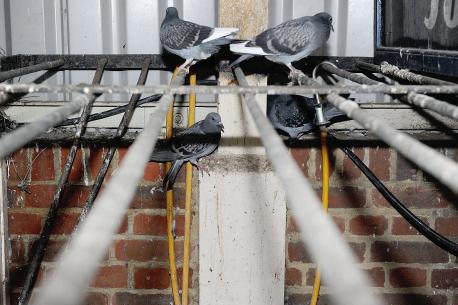
by Pigeon Patrol | Jul 20, 2023 | 4-S Gel Bird repellent, Animal Deterrent Products, Bird Deterrent Products, Bird Law, Bird Netting, Bird Spikes
Wageningen University released the results of research on a poultry farm that suffered visits from wild waterfowl, which are a source of the avian influenza virus (AIV).
The study revealed that when the laser was in use, a 99.7% wild bird reduction rate was recorded.
Wageningen Bioveterinary Research (WBVR), part of the Wageningen University, previously discovered a mallard, which is a species identified as a high-risk bird for carrying the avian flu virus, was frequenting a free-range area of a poultry farm from sunset to sunrise. This was notable from November to February, the typical bird migration period and when the avian influenza virus is more prevalent. Therefore, chickens in the free-range area had increased exposure to the virus, due to the regular occurrence of wild waterfowl during this time.
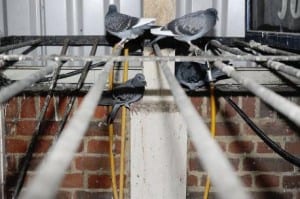
The project leader of the study, and epidemiologist at WBVR, Armin Elbers, explained: “Several mallards came to visit the range between sunset and sunrise daily. They look for food and swim in puddles of water that are formed during the winter period by abundant rainfall in the range. While swimming in the puddles, the ducks may defecate. During the day, the chickens drink the same water, as we saw in the video camera images. In the cold winter period, the bird flu virus can survive in such water for a long time.”
Wageningen University & Research did a study with the laser bird deterrent manufactured by Bird Control Group. This study explored whether the laser system could be a successful biosecurity measure to prevent avian influenza viruses from spreading from wild birds to domestic animals. The laser bird deterrent system has been used worldwide in a variety of applications to reduce bird presence. The system spooks birds away by projecting a green laser beam across areas where birds aggregate. The birds see the green laser beam as a solid object and instinctively perceive it as a physical threat, causing them to flee the area immediately.
The WBVR study took place in the winter of 2019-2020. The laser bird deterrent system was deployed on a six-meter-high pole in the farm’s free-range area of 1.5 hectares. In that area, eight wide-angle video cameras were installed to record visits of wild birds. The laser bird deterrent was active in the free-range area between 5 pm, and 10 am when the laying hens were in the barn. Between 10 am and 5 pm, the laying hens were in the free-range area, and the laser was used to protect the grass pastures surrounding the farm. The study was carried out over two months: one month without the laser, followed by one month with the laser.
Elbers earlier discussed the study during the International Egg Commission webinar, “AI Prevention and Innovative Biosecurity Measures — How the Dutch Egg Industry is Tackling AI,” held in October 2020. He said at the time the results would be released soon.
Study results
The results of the study indicated that virtually no wild ducks visited the free-range area (99.7% prevention rate) when the laser was in use. There was also a reduction of visits from other wild birds in the free-range area during sunrise, and 10 a.m. (about 96% prevention). The research interpreted, “The overall (all bird species) efficacy of the laser for reducing the rate of wild birds visiting the free-range study area was 98.2 %.”
When the laser was not in use in the free-range area, a significant number of geese would visit the surrounding grass pastures during the day.
Elbers concluded: “In this study, we confirm the high efficacy of using lasers to reduce the daily number of wild bird visits to the free-range area of a layer farm situated in an AIV-hotspot area. Given this high efficacy, the application of these lasers becomes a viable alternative for the prevention of introduction of avian influenza infections in poultry.”
Industry knowledge and future perspective
“For free-range poultry farms located in high-risk avian flu virus areas, which had repeated introductions of avian flu virus in the past, we believe that a laser could be helpful as a preventive measure to keep wild birds away from the farm during the high-risk period (October to March). Poultry farms with strictly indoor accommodations have also been infected with avian influenza virus in the past due to their location near wetlands. Using a laser during the high-risk period could offer a solution to this problem too by keeping wild waterfowl away from the vicinity of the barn,” Elbers stated.
The laser bird repellent has already been deployed at a poultry farm, Orchard Eggs, in the U.K.
Daniel Hoberichts, the owner of Orchard Eggs, understood the biosecurity measures that had to be taken to protect his poultry. He uses the laser bird repellent to prevent the chickens and staff from being exposed to the avian influenza virus.
Hoberichts explained: “Our birds are housed across 50 acres of orchard and we want to do everything to keep them safe from infection. Once we heard about the AVIX Autonomic it seemed like an ideal solution to complement all of our other biosecurity measures.” The laser bird repellent helped reduce bird presence by more than 90%.
Source
Pigeon Patrol Products & Services is the leading manufacturer and distributor or bird deterrent (control) products in Canada. Pigeon Patrol products have solved pest bird problems in industrial, commercial, and residential settings since 2000, by using safe and humane bird
deterrents with only bird and animal friendly solutions. At Pigeon Patrol, we manufacture and offer a variety of bird deterrents, ranging from Ultra-flex Bird Spikes with UV protection, Bird Netting, 4-S Bird Gel and the best Ultrasonic and audible sound devices on the market today.
Voted Best Canadian wholesaler for Bird Deterrent products ten years in a row.
Contact us at 1 877-4-NO-BIRD,(604) 585-9279 or visit our website at www.pigeonpatrol.ca
Pigeon/Pigeon Patrol / Pigeons Roosing / Vancouver Pigeon Control / Bird Spikes / Bird Control / Bird Deterrent / PIgeon Deterrent / Surrey Pigeon Control / Pest / Seagull deterrent / Vancouver Pigeon Blog / Birds Inside Home / Pigeons in the cities / Ice Pigeons / What to do about pigeons / sparrows, Damage by Sparrows, How to Keep Raccoons Away, Why Are Raccoons Considered Pests / De-fence / Pigeon Nesting / Bird Droppings / Pigeon Dropping / woodpecker control / Professional Bird Control Company / Keep The Birds Away / Birds/rats/seagull/pigeon/woodpecker/dove/sparrow/pidgeon control/pidgeon problem/pidgeon control/flying rats/pigeon problems/ bird netting/bird gel/bird spray/bird nails/bird guard
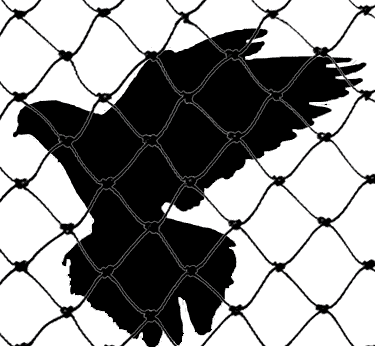
by Pigeon Patrol | Jul 20, 2023 | Columbidae, Doves, history of pigeons, MBCA, pet bird, Pigeon Control, Pigeon Droppings, Pigeon Patrol's Services
New research publishing June 18 in the open-access journal, PLOS Biology, led by Dr Lucy Taylor from the University of Oxford’s Department of Zoology now reveals that homing pigeons fit in one extra wingbeat per second when flying in pairs compared to flying solo.
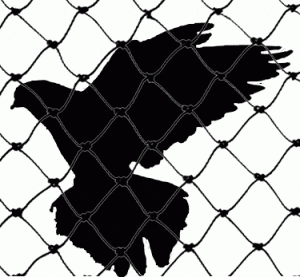
Birds that fly in ‘V’-formations, such as geese, are able to conserve energy by flying in aerodynamically optimal positions. By contrast, in species that don’t fly in formation, such as homing pigeons, the costs and benefits of flocking have been less well understood.
The research indicates that flying with another bird requires more energy compared to flying solo. ‘The results of this study were completely unexpected. Energy is the currency of life so it’s astonishing that the birds are prepared to pay a substantial energetic cost to fly together,” said lead-author, Dr Lucy Taylor.
The team used high frequency GPS and accelerometer bio-loggers to measure how pigeons changed their wingbeat patterns when flying in pairs compared to flying solo. The accelerometers act much like fitness trackers but, instead of measuring steps, the researchers measure wingbeats. ‘The increase in wingbeat frequency is equivalent to Usain Bolt running the 100m sprint at his usual speed, whilst fitting in nearly one extra step per second. The pigeons are flapping faster when flying in pairs but hardly going any faster,” said Dr Taylor.
The increase in wingbeat frequency is likely to be related to the demands of coordinating flight. Dr Taylor said: ‘Imagine trying to coordinate with and avoid hitting another small object travelling at around 44 miles per hour. This is nearly two times faster than an Olympic sprinter, and the birds can move up and down as well as left and right. For a pigeon, flapping your wings faster will both give you faster reactions and greater control over your movements, and will help keep your head stable making it easier to track where the other bird is.’
Despite the costs of fitting in one additional wingbeat per second, the birds consistently chose to fly together, suggesting that they were able to gain other benefits from flocking. Birds flying in a pair were simultaneously able to improve their homing accuracy, meaning that they could conserve energy by flying shorter routes home. Combined with increased predator protection from safety in numbers, this research suggests that the overall benefits of flocking outweigh the immediate energetic costs of changing wingbeat patterns.
Source
Pigeon Patrol Products & Services is the leading manufacturer and distributor or bird deterrent (control) products in Canada. Pigeon Patrol products have solved pest bird problems in industrial, commercial, and residential settings since 2000, by using safe and humane bird
deterrents with only bird and animal friendly solutions. At Pigeon Patrol, we manufacture and offer a variety of bird deterrents, ranging from Ultra-flex Bird Spikes with UV protection, Bird Netting, 4-S Bird Gel and the best Ultrasonic and audible sound devices on the market today.
Voted Best Canadian wholesaler for Bird Deterrent products ten years in a row.
Contact us at 1 877-4-NO-BIRD,(604) 585-9279 or visit our website at www.pigeonpatrol.ca
Pigeon/Pigeon Patrol / Pigeons Roosing / Vancouver Pigeon Control / Bird Spikes / Bird Control / Bird Deterrent / PIgeon Deterrent / Surrey Pigeon Control / Pest / Seagull deterrent / Vancouver Pigeon Blog / Birds Inside Home / Pigeons in the cities / Ice Pigeons / What to do about pigeons / sparrows, Damage by Sparrows, How to Keep Raccoons Away, Why Are Raccoons Considered Pests / De-fence / Pigeon Nesting / Bird Droppings / Pigeon Dropping / woodpecker control / Professional Bird Control Company / Keep The Birds Away / Birds/rats/seagull/pigeon/woodpecker/dove/sparrow/pidgeon control/pidgeon problem/pidgeon control/flying rats/pigeon problems/ bird netting/bird gel/bird spray/bird nails/bird guard
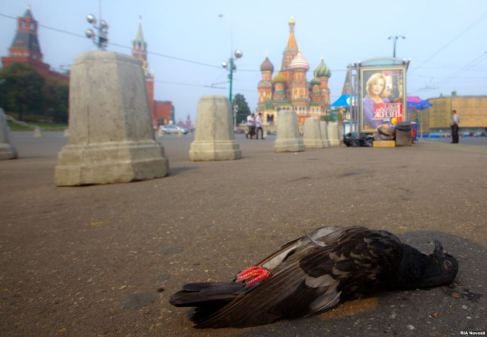
by Pigeon Patrol | Jul 20, 2023 | Columbidae, Doves, history of pigeons, MBCA, pet bird, Pigeon Control
Some people feed pigeons bread crumbs or keep them as pets in rooftop coops. Others see the animals as pests, carriers of disease or simply “rats with wings.” But whatever you think about these birds, there’s one fact no one will argue: Pigeons are everywhere.
Have you ever wondered how one kind of bird managed to take over urban areas as far apart as Washington; London, England; Mumbai, India; and Melbourne, Australia? Or why it is that pigeons are so plentiful in cities and not eagles, turkeys, hummingbirds or vultures?
Well, the first thing you need to know about pigeons is that they’re actually doves. Or doves are actually pigeons. Scientifically, there’s no difference between the two.
“In some languages, there isn’t even a separate word for ‘pigeon,’ ” said Colin Jerolmack, a scientist at New York University who studies human societies.
There are still pigeons living in the wild today. They evolved on the shores of North Africa and the Mediterranean Sea, where they make their homes on rocky ledges and cliffs. And it was this natural love for hard surfaces that made them a perfect fit in urban areas.
“They actually really like concrete, marble and stone, so they prefer to live and build nests not in the trees and shrubs and grass, but alongside buildings,” said Jerolmack, who wrote a book called “The Global Pigeon.”
But perhaps the biggest reason you’ll find pigeons in cities around the world is because humans brought them there.
At least as long as 5,000 years ago, the people of an ancient Middle Eastern civilization known as Mesopotamia started putting out houses for these birds. As the birds became more tame, people began breeding them for food in areas where other wild animals had become scarce.
Later, people learned that they could also use pigeons to carry written messages over long distances, thanks to the birds’ homing instinct.
“You can take a street pigeon in D.C. and drive it down to North Carolina and release it, and, more often than not, it’ll find its way home,” Jerolmack said.
As you can see, pigeons can be quite useful. It’s been only in the past 80 to 100 years that people started disliking the birds, Jerolmack said. And much of the dislike comes from misunderstanding.
For example, there’s really no solid evidence that pigeons pass diseases on to people. And once you get to know them, you might change the way you think.
Did you know that pigeons mate for life, for instance? Or that once their chicks hatch, both parents take turns feeding their young a liquid produced in their digestive tract called “crop milk?”
Anyway, humans have only themselves to blame for the pigeons cooing on every corner.
“We bred them and domesticated them, and kept them in cities as we developed cities,” Jerolmack said. “So they’ve always been here, from the beginning.”
Source
Pigeon Patrol Products & Services is the leading manufacturer and distributor or bird deterrent (control) products in Canada. Pigeon Patrol products have solved pest bird problems in industrial, commercial, and residential settings since 2000, by using safe and humane bird
deterrents with only bird and animal friendly solutions. At Pigeon Patrol, we manufacture and offer a variety of bird deterrents, ranging from Ultra-flex Bird Spikes with UV protection, Bird Netting, 4-S Bird Gel and the best Ultrasonic and audible sound devices on the market today.
Voted Best Canadian wholesaler for Bird Deterrent products ten years in a row.
Contact us at 1 877-4-NO-BIRD,(604) 585-9279 or visit our website at www.pigeonpatrol.ca
Pigeon/Pigeon Patrol / Pigeons Roosing / Vancouver Pigeon Control / Bird Spikes / Bird Control / Bird Deterrent / PIgeon Deterrent / Surrey Pigeon Control / Pest / Seagull deterrent / Vancouver Pigeon Blog / Birds Inside Home / Pigeons in the cities / Ice Pigeons / What to do about pigeons / sparrows, Damage by Sparrows, How to Keep Raccoons Away, Why Are Raccoons Considered Pests / De-fence / Pigeon Nesting / Bird Droppings / Pigeon Dropping / woodpecker control / Professional Bird Control Company / Keep The Birds Away / Birds/rats/seagull/pigeon/woodpecker/dove/sparrow/pidgeon control/pidgeon problem/pidgeon control/flying rats/pigeon problems/ bird netting/bird gel/bird spray/bird nails/bird guard
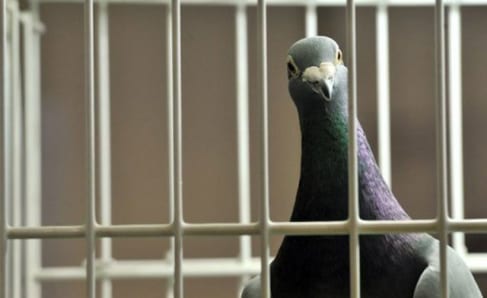
by Pigeon Patrol | Jul 20, 2023 | Bird Spike, Pigeon Predators, Pigeon Spikes, Pigeons, Pigeons in the News, Raccoons, Sparrows, UltraSonic Bird Control
Sick of sea gulls? Petrified of pigeons? Bothered by birds? Have you been stepping in excessive amounts of bird poo around your home or business?
This guide is packed full of everything you need to know about bird management in the UK. The guide includes why we sometimes have to control birds, how to deter birds, and how to get rid of them if you have an infestation.
Whether you’re thinking about doing some DIY bird control or you’re looking to enlist the help of a professional bird management company, this guide is for you.
We love British birds. Every wild bird and their eggs in the UK is rightfully protected by law under the Wildlife and Countryside Act 1981.
There are hundreds of species of birds in the UK. Having birds visit your garden is a wonderful treat, and we’re all happy to see them.
Unfortunately, a few species of birds come into direct conflict with humans when they take roost in or around our homes or businesses. These birds can cause real problems, including excessive nuisance and public health concerns.
Urban birds such as gulls and pigeons are great opportunists. Handed a ready food source and sheltered nesting site, these birds can grow rapidly and what initially attracted a few birds can soon become a thriving colony.
That’s when a professional can step in and help you control and manage pest birds.
The dangers: why control birds?
Pathogens and diseases
There are more than 110 pathogens reportedly carried by pigeons, and there is plenty of research to suggest other wild birds pass on diseases to humans.
Some of the more common diseases and pathogens that birds can spread:
| Air-borne diseases |
Food-borne disease |
| Chlamydia psittaci (Ornithosis) |
Salmonella spp. |
| Cryptococcus neoformans |
Escherichia coli |
| Histoplasma capsulatum |
Campylobacter jejuni |
| Allergenic particles (bird fancier’s lung) |
Listeria monocytogenes |
|
Vibrio cholerae |
In 2019, two patients died in a Glasgow hospital who had contracted a cryptococcal fungal infection which was subsequently linked to pigeon droppings.
Diseases can be transmitted from bird droppings and the birds themselves.
When dry, pigeon droppings can become airborne in small particles, which can lead to respiratory complaints.
You should always wear appropriate personal protective equipment (PPE) when cleaning up bird droppings.
Food-borne bacteria can be spread to humans if you have poor food hygiene standards or come into direct contact with droppings (wash your hands straight away)!
Pigeons, gulls, house sparrows and starlings have the potential to carry food-borne diseases – it is therefore essential to keep them away from food manufacturers and distributors.
Safety concerns
All bird droppings can be slippery and can cause a serious risk on pavements, particularly under roosting birds.
As funny as it might seem to see a gull steal someone’s chips at the seaside, gulls can pose a serious safety concern.
During the breeding season, gulls have been known to attack people unprovoked. Gulls have the potential to startle and even draw blood when they attack.
All birds have the potential to cause real problems on airfields. When birds are sucked into plane engines (bird strikes) – while rarely fatal – they can cause damage to aircraft and emergency landings.
Damage to property and brickwork
Bird droppings are acidic and can corrode and erode metals, stonework and brickwork.
Nesting materials birds use can block chimneys, flues and guttering, causing possible issues with carbon monoxide and damage to buildings as water overflows from blocked gutters.
Buildings covered in fouling looks unpleasant, can smell, and projects a poor image of a business, potentially ruining an organisation’s reputation. If customers spot evidence of a bird infestation on your premises, they may not want to do business with you.
A professional pest management company can help protect your building using proofing and bird deterrent measures.
Secondary insect infestations
Where birds go, so too go the parasites that live on them. Bird mites, ticks, fleas and beetles can all cause complicated secondary infestations.
If you have a current or past problem with birds, you may find you’ll suffer from a parasite infestation too.
These little critters can quickly multiply into thousands, leaving you feeling overwhelmed.
The relentless biting, itching, crawling sensation and lack of sleep are the physical symptoms that can propagate a whole host of secondary mental health issues.
Bird mites are parasitic arthropods feed on living organisms. It is the female mite that needs a blood meal to reproduce viable eggs. They are attracted to mammals by receptors for moisture, heat and CO2, and they often bite humans when their original food source has gone – like when the young birds leave the nest.
If you have a parasite issue because of a bird infestation, contact a professional pest management company as soon as possible.
Birds around businesses
If you have birds roosting in and around your business then you’ll want to seek professional help as soon as possible.
In the UK, allowing birds to infest a food business violates the Food Safety (General Food Hygiene) Regulations 1995, and could result in prosecution of the food company.
If you don’t address health and safety hazards, you could be putting your staff and customers at risk.
By investing in a professional bird management contract, you can save money in the long run by reducing damage to your property or stock.
The reputational damage caused by a bird infestation can be catastrophic. Bird droppings make any business appear unclean and imply a state to disrepair.
Would you choose to use a company covered in dangerous poo?
Find a professional to help stop bird infestations at your work and protect your business today.
Birds control licences and the law
The Wildlife and Countryside Act 1981 protects all wild birds, their nests and eggs.
However, specific exemptions permit certain species to be controlled by particular methods for specific reasons.
This exemption is given in the way of a wildlife licence issued by Natural England, Natural Resources Wales, Scottish Natural Heritage or Department of Agriculture, Environment and Rural Affairs.
General licences are issued to allow certain actions to be carried out that would otherwise be illegal under the legislation, without the need for people to apply for a specific licence.
Individual licences are sometimes granted for specific situations not covered by a general license. These do need to be applied for.
The law only allows competent people such as professional pest controllers to deal with certain species.
You should always consult with a professional before you consider any form of bird control measures, as the list of birds that are considered pests can change regularly.
You can be prosecuted in the UK if you illegally interfere with a bird, it’s nests or eggs and you’re not doing under a wildlife licence.
Signs of a bird infestation
What do you need to look out for to spot a bird infestation? Some bird species like pigeons and gulls have adapted to live around us.
By their nature, birds will normally be at height keeping away from us.
Here are the seven signs that you have a bird problem:
- Spotting lots of birds settling on roofs or ledges
- Loud bird noises and cries from young chicks
- Finding nesting materials thrown about your home of business
- Damaged stock from pecking
- Bird fouling/droppings
- Blocked guttering and drainage systems with feathers and nest materials
- Secondary infestations from bird parasites (such as bird mites).
Types of birds that can be a pest
While most species of birds coexist with humans and rarely come into conflict with us, some species of birds in certain situations are considered pests.
It’s important to note that even species typically considered “pest birds” are protected by law.
Control of feral pigeon (Columba livia)
The feral pigeon is a widespread pest bird found in cities, towns and rural settings in the UK and around the world.
Pigeons can harbour a large variety of diseases and insects on their bodies. Its nests and fouling are also public health concerns.
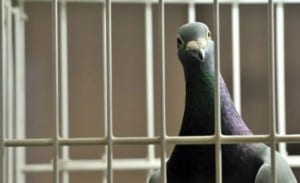
Biology of a pigeon
Feral pigeons originally descended from domesticated rock doves. The population is supported by escaped racing pigeons.
Pigeons usually make their nests in bridges, buildings or any structures with easily accessible shelter.
Males and females help build nests out of grass, twigs, features and even litter such as plastics and wire. The nests can be quite large and quickly become thick with droppings.
Depending on breeding conditions, pigeons can have up to seven broods (birds produced at one hatching) in their breeding season between March and July.
Two eggs hatch in around 18 days. With access to enough food, the young pigeons will become independent adults in just 30 days.
More eggs can be hatched before the young have even left the nest, meaning a population can quickly grow.
Wild pigeons will live up to four years, relying on human food scraps and spillages, or taking from newly sown farmland.
Behaviour of a pigeon
You’ll often see pigeons in town centres feeding in huge flocks, ranging in size from 50 to 400-plus birds.
Pigeons have a social order, so the more dominant birds feed first and get the best breeding sites.
Management and control of pigeons
The best way to get rid of pigeons is to remove a food source.
Cover bins, clean up spillages and restrict access to food. Most importantly – don’t feed the pigeons!
Proofing with nets, spikes and mesh can stop pigeons perching and roosting in structures.
Scaring techniques rarely work with pigeons. Visual and audio scaring doesn’t tend to work very well or for very long. Pigeons adapt very quickly to new things.
Flying birds of prey regularly can be useful.
Lethal control can be an option when a bird has entered a food premises or overcome the proofing measures.
Culling pigeons to reduce flock sizes is rarely successful unless access to food is restricted, otherwise population numbers soon recover. This should only ever be done as a last resort and in accordance with a wildlife licence (general or individual) issued by an appropriate government department.
How to prevent and deter birds
All urban birds require is:
- A nesting/ roosting sites (eg balconies, window ledges and roof areas of surrounding buildings)
- A reliable food source.
Removing bird food sources or blocking off sites where they perch or roost is the best way to prevent birds causing a problem.
The number of birds attracted to an area will depend on what food is available.
All of these methods of proofing have their merits and some can offer a stronger and more lasting deterrent, but as with any method of control, they may become less effective over an extended period of time.
Flying a bird of prey can be a great way of deterring birds from a certain area.
For a heavy bird infestation, your professional contractor may have to employ methods of control such as egg and nest removal, shooting, trapping or flying of predatory birds.
Therefore if birds are being fed, more will be attracted to that area, so food sources must be kept to a minimum. Keep your bin lids closed and cover compost bins.
Source
Pigeon Patrol Products & Services is the leading manufacturer and distributor or bird deterrent (control) products in Canada. Pigeon Patrol products have solved pest bird problems in industrial, commercial, and residential settings since 2000, by using safe and humane bird
deterrents with only bird and animal friendly solutions. At Pigeon Patrol, we manufacture and offer a variety of bird deterrents, ranging from Ultra-flex Bird Spikes with UV protection, Bird Netting, 4-S Bird Gel and the best Ultrasonic and audible sound devices on the market today.
Voted Best Canadian wholesaler for Bird Deterrent products ten years in a row.
Contact us at 1 877-4-NO-BIRD,(604) 585-9279 or visit our website at www.pigeonpatrol.ca
Pigeon/Pigeon Patrol / Pigeons Roosing / Vancouver Pigeon Control / Bird Spikes / Bird Control / Bird Deterrent / PIgeon Deterrent / Surrey Pigeon Control / Pest / Seagull deterrent / Vancouver Pigeon Blog / Birds Inside Home / Pigeons in the cities / Ice Pigeons / What to do about pigeons / sparrows, Damage by Sparrows, How to Keep Raccoons Away, Why Are Raccoons Considered Pests / De-fence / Pigeon Nesting / Bird Droppings / Pigeon Dropping / woodpecker control / Professional Bird Control Company / Keep The Birds Away / Birds/rats/seagull/pigeon/woodpecker/dove/sparrow/pidgeon control/pidgeon problem/pidgeon control/flying rats/pigeon problems/ bird netting/bird gel/bird spray/bird nails/bird guard

